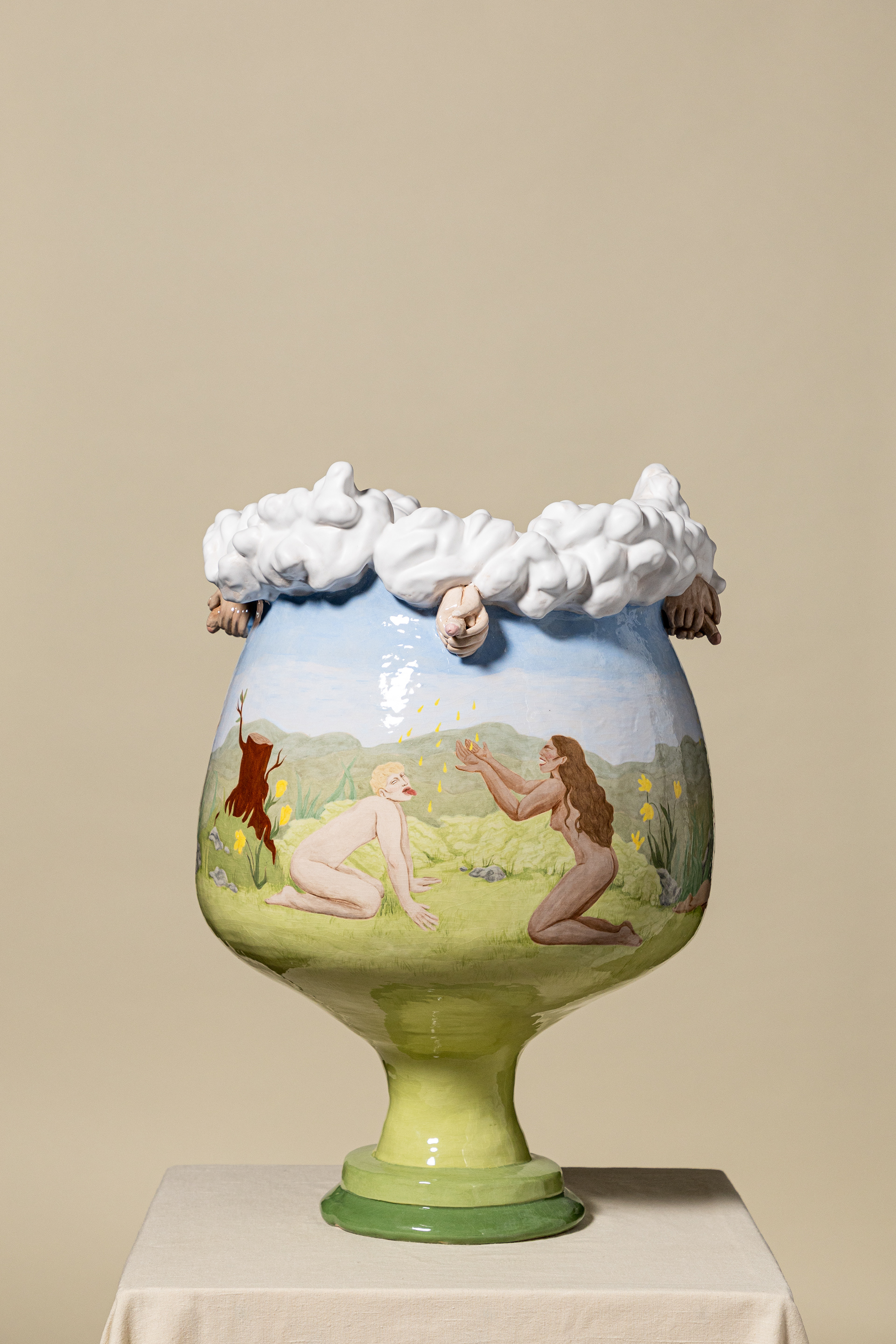‘We Never Change’ is a reappraisal of Greek mythology. In a series of five painted, ceramic vases, I link Greek myths and mythological themes to the present. The vases are based on Ancient Greek pottery and the renaissance served as an inspiration for the paintings. By mirroring the portrayal of profoundly human themes in Greek mythology to our modern-day society, I explore the shifting norms and values concerning these themes and conclude that human nature doesn’t change.
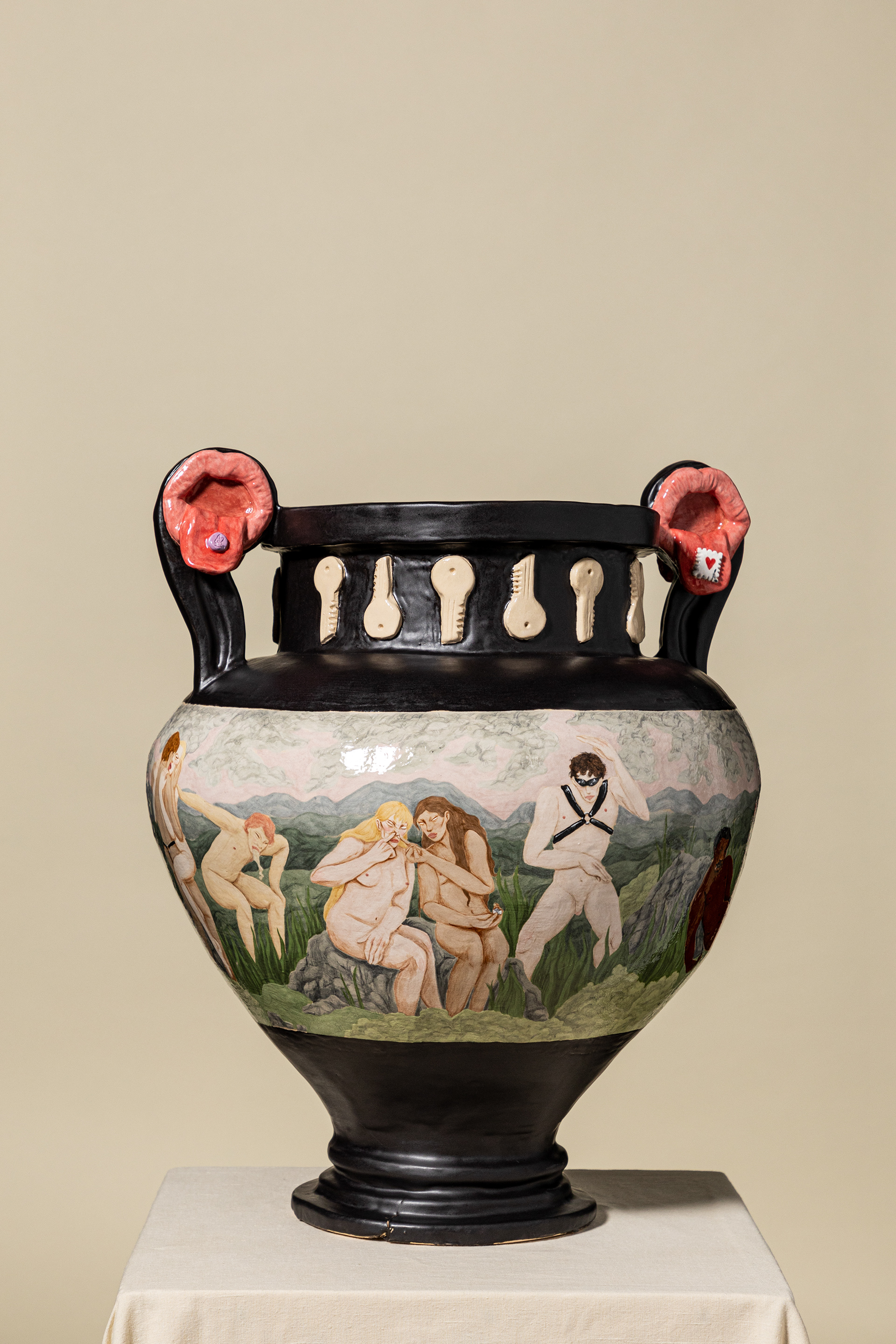
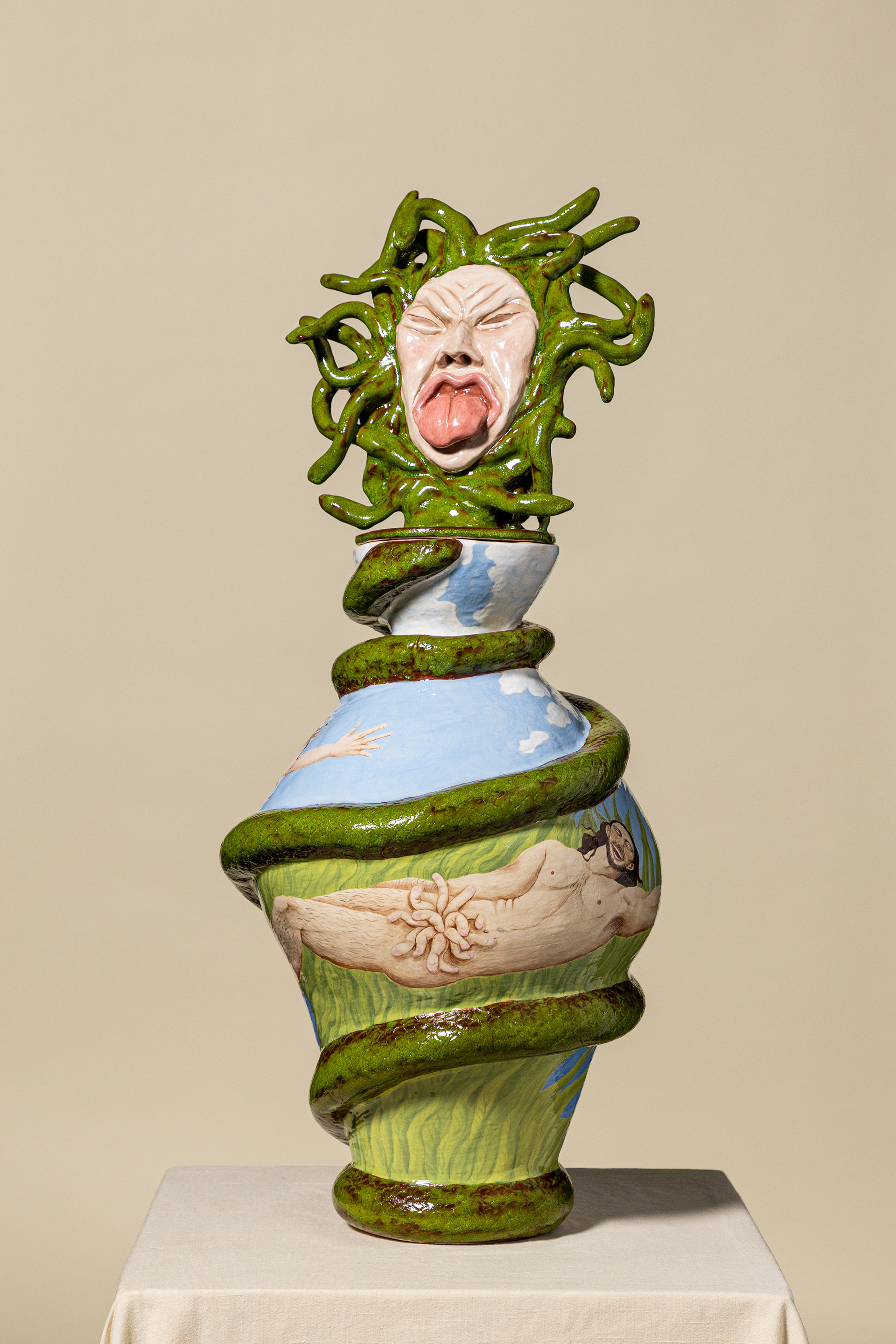
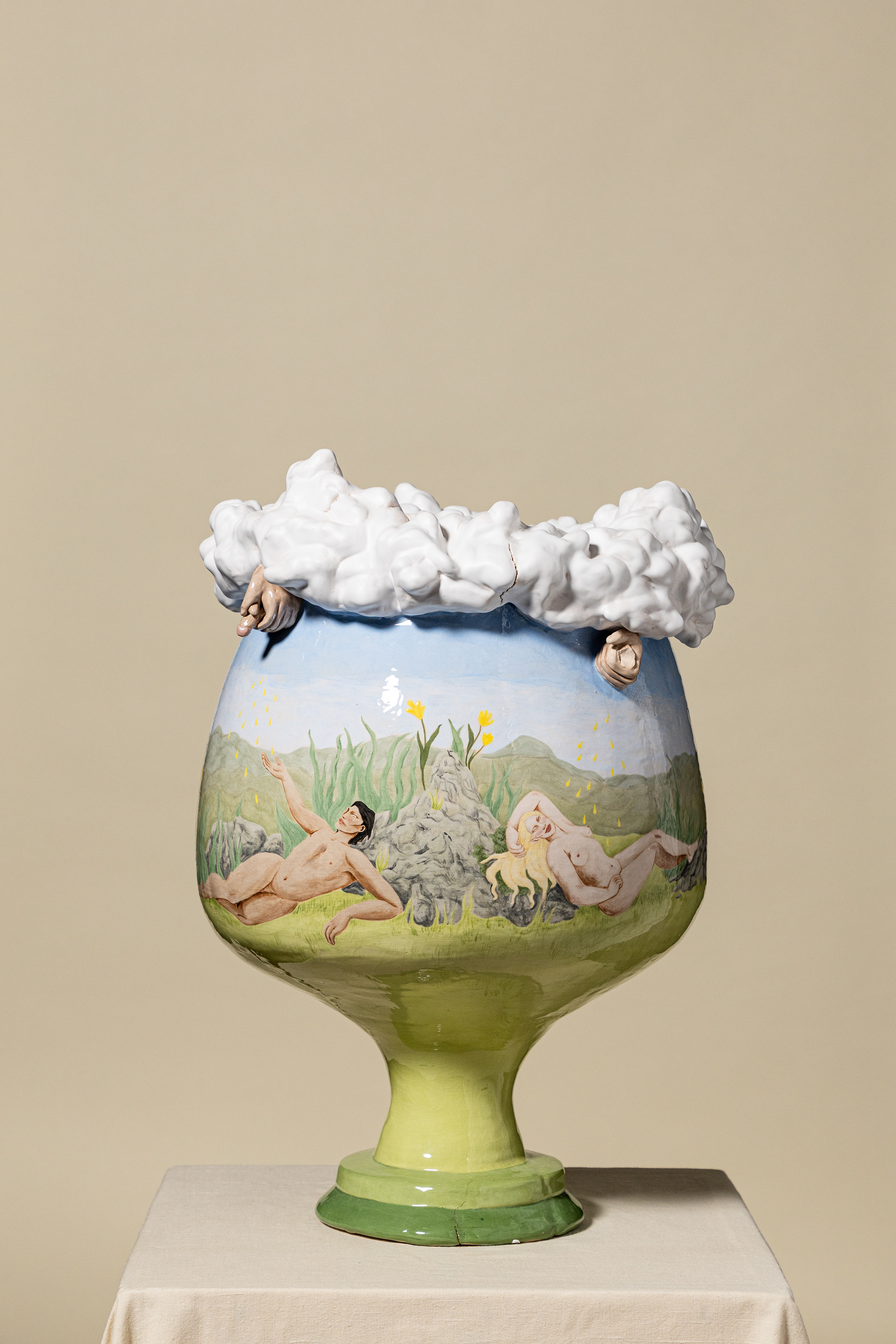
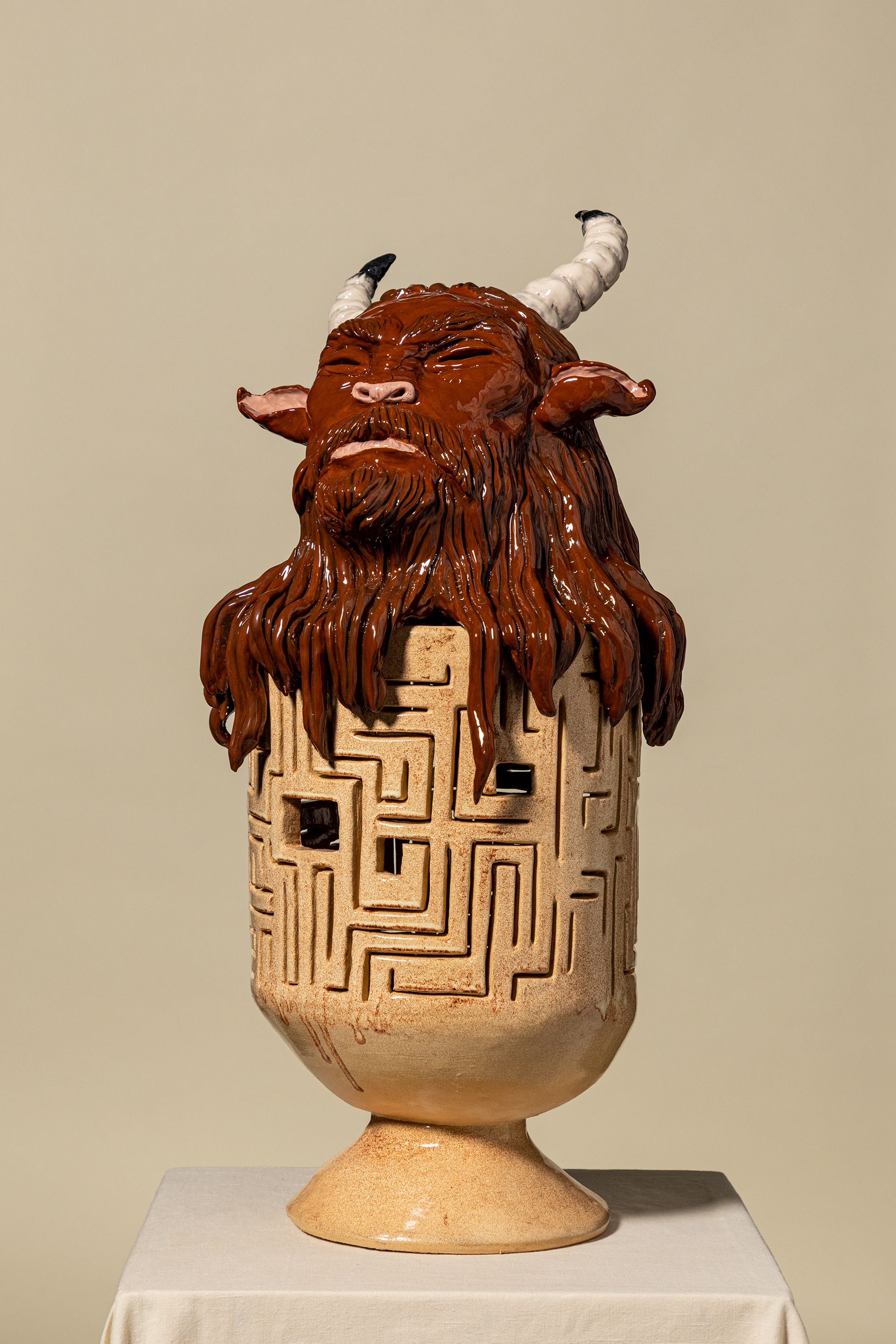
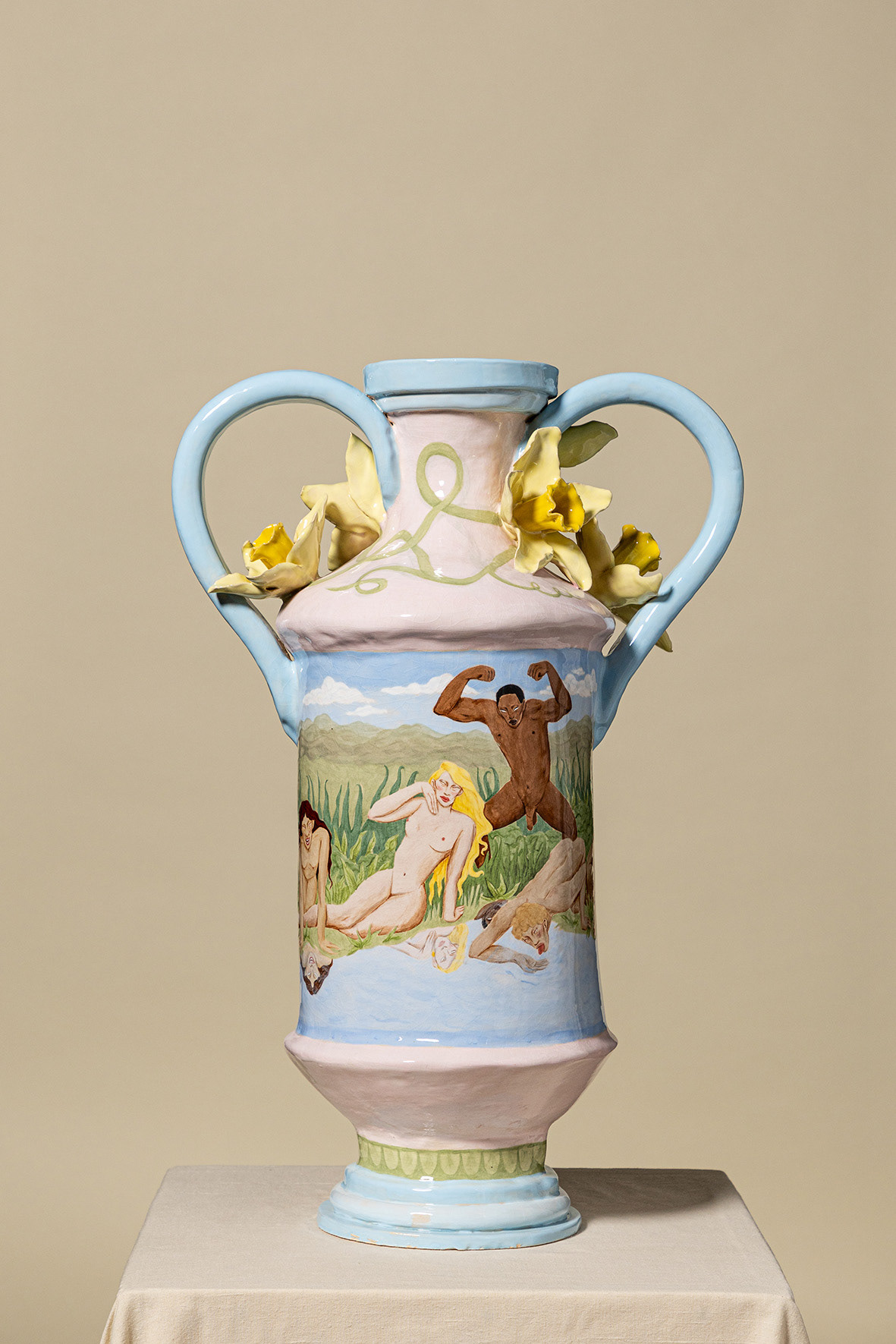
- the god or gods we conceive of should reflect the world they made for us. Majestic, beautiful, powerful, grand and miraculous certainly - but also capricious, petty, cruel, violent and deeply unfair. Nonna gets that perfectly. She sees the frenzied bacchanals of Dionysus in our culture of addiction, the self-fixation of Narcissus in our obsession with social media image and popularity.
© 2023 Stephen Fry
Stephen Fry’s book Mythos: The Greek Myths Retold is published in the English language by Michael Joseph and in the Dutch language by Thomas Rap
We Never Change at Manifestations - DDW 2023 © Edwin Smits
© Jasper Zijlstra
Felt Cute, Might Delete
The lovely Narcissus was too beautiful for his own good. He spurned all those who fell in love with him, but when he saw his own reflection in the water, he finally did fall in love himself, and with himself. In other words, Narcissus was aroused by nothing as much as by his own image. As a result, he spent all his time gazing into the water, mesmerized by the beautiful creature staring back at him. But every time he tried to touch him, the water rippled and the lovely visage disappeared. Time passed and Narcissus, due to the realization that he could never possess his object of desire, or perhaps because this time he was the one whose love was not reciprocated, ceased to exist as a man and in his place there grew the yellow flower we know as the narcissus or daffodil, a flower forever gazing downward just as Narcissus himself had done.
At first glance, we might deride Narcissus and maybe feel a tad sorry for him as well, and we often use the term ‘narcissist’ to criticize others (not ourselves, of course not!) for their self-centredness. A second, more profound glance at the people Nonna depicts on her vase, however, prompts us to reflect on our own behaviour and also on modern day society, in which images of ourselves have become so important. Presenting ourselves on social media with heavily edited pictures, using hyperbolic language to describe every aspect of our lives as special and amazing and unique, and recording everything we do with our own face square in the middle of the selfie, so as to make clear that we are there: is our self-absorption really that different from that of Narcissus?
Text by Maarten van Houte
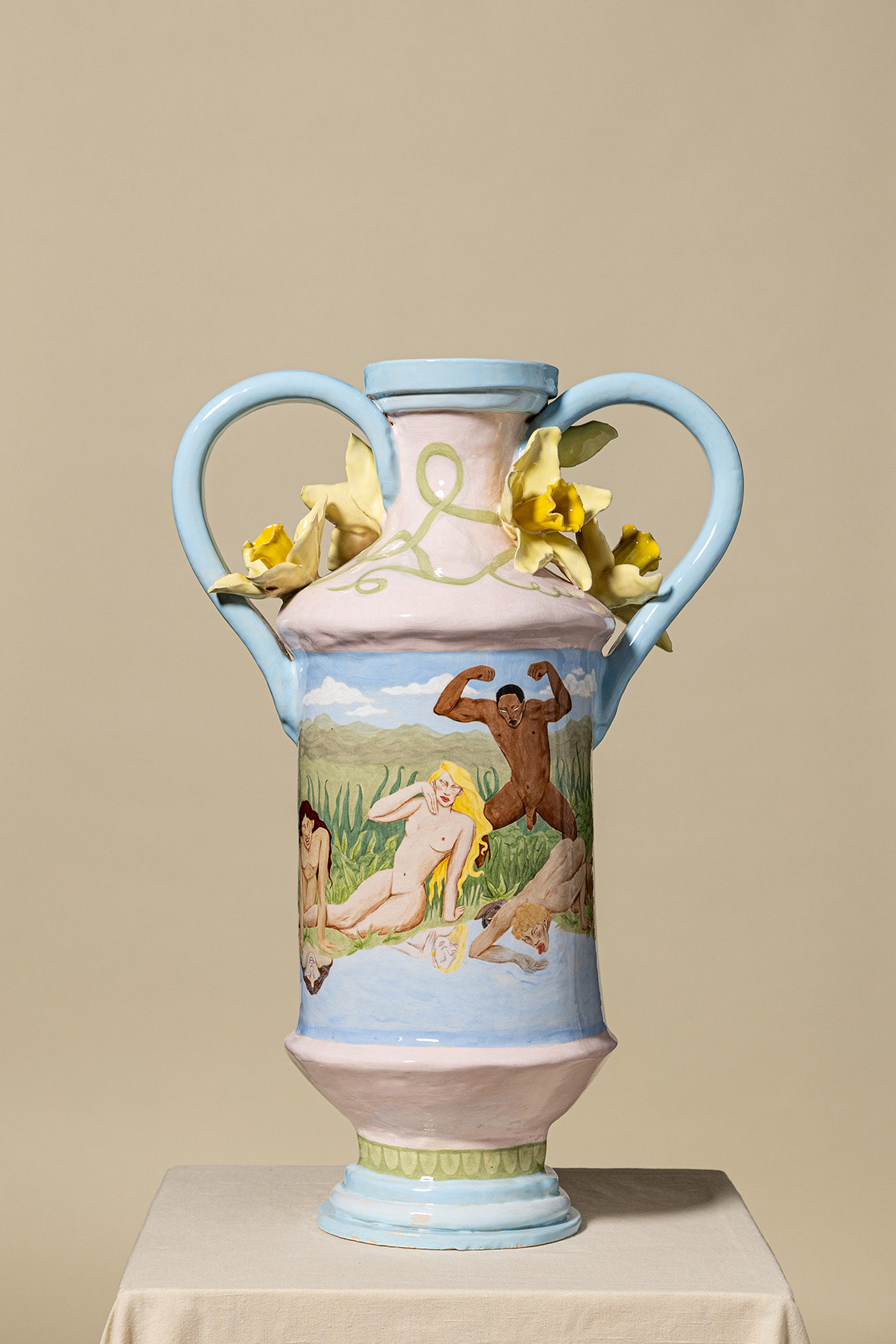
© Jasper Zijlstra
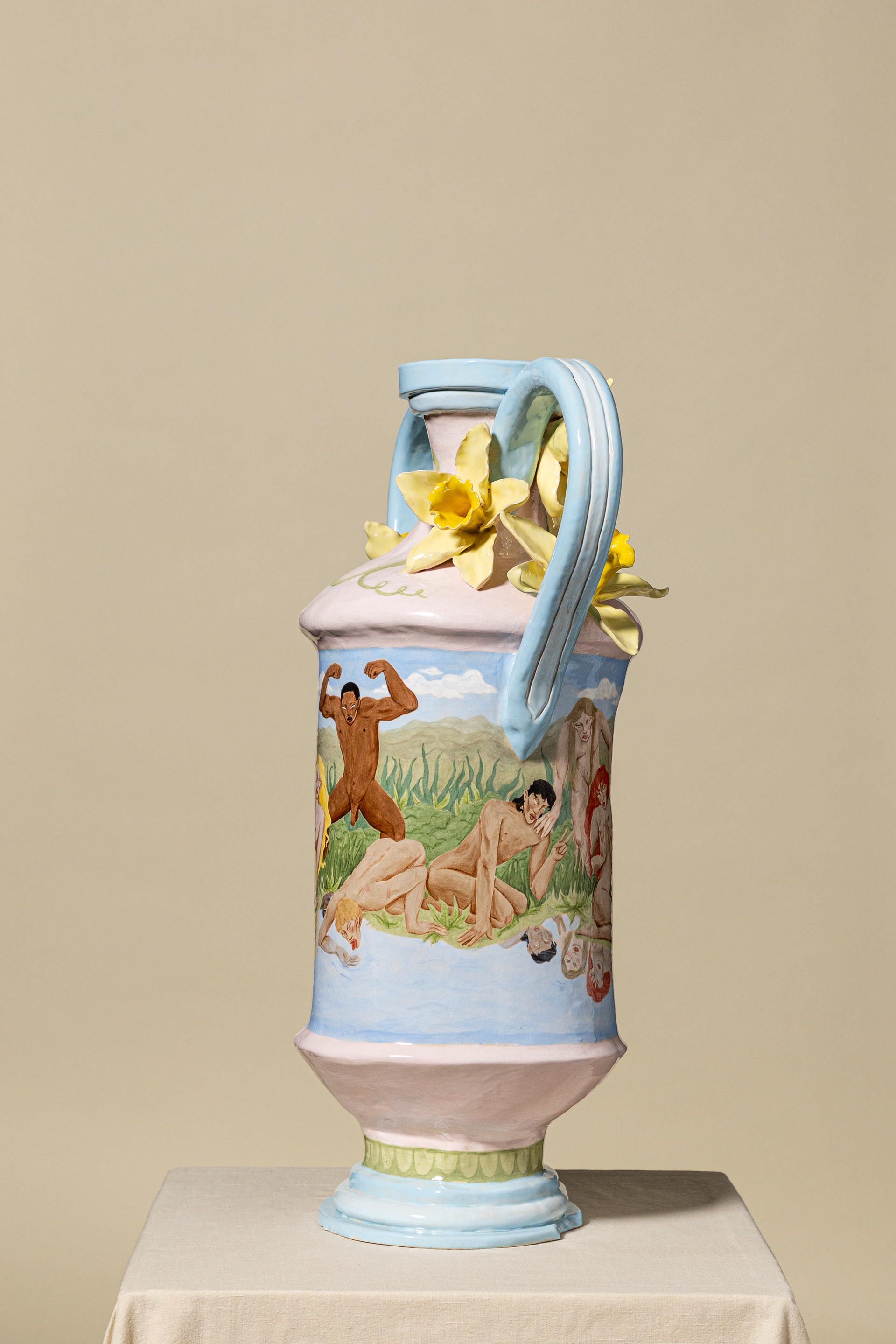
© Jasper Zijlstra
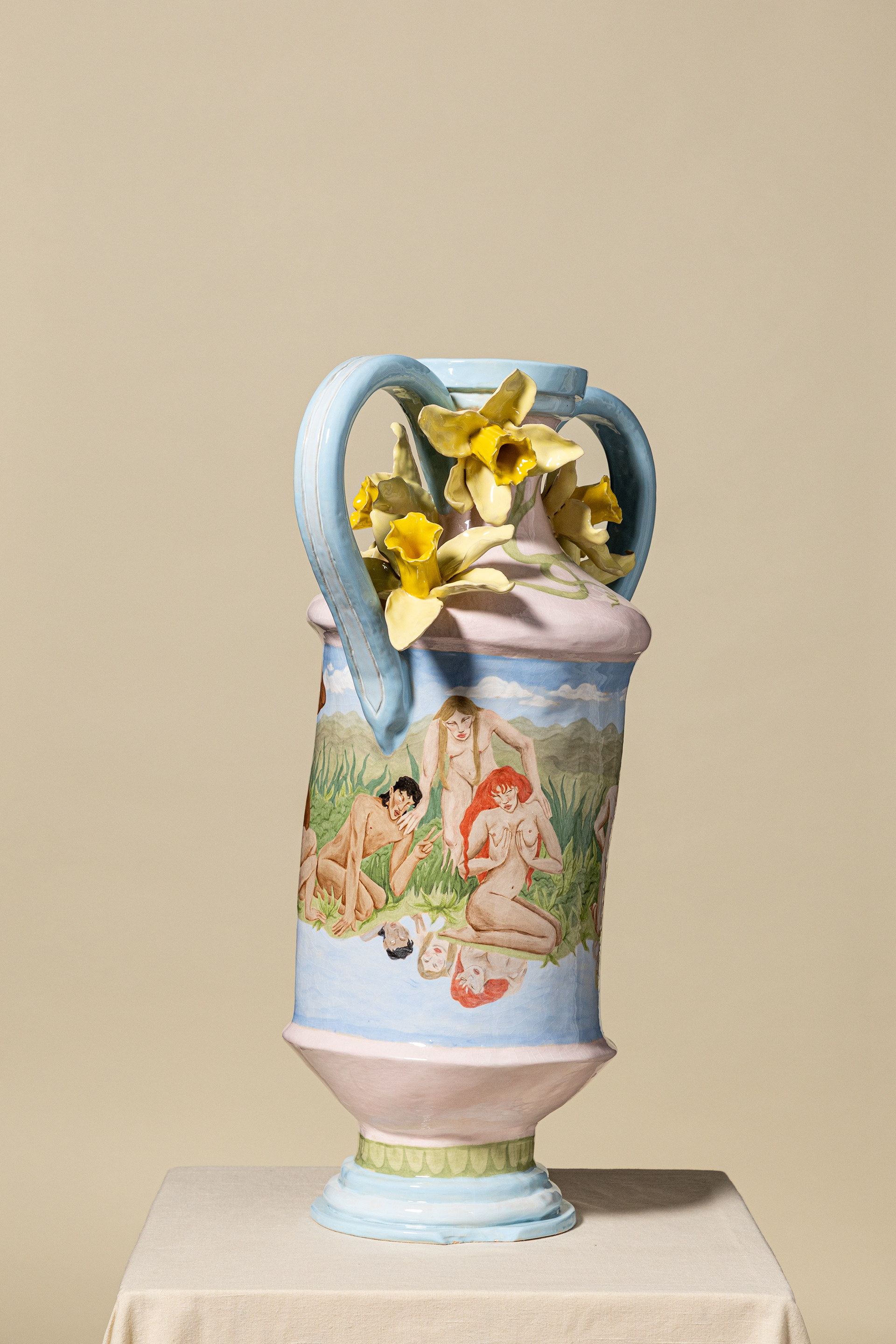
© Jasper Zijlstra
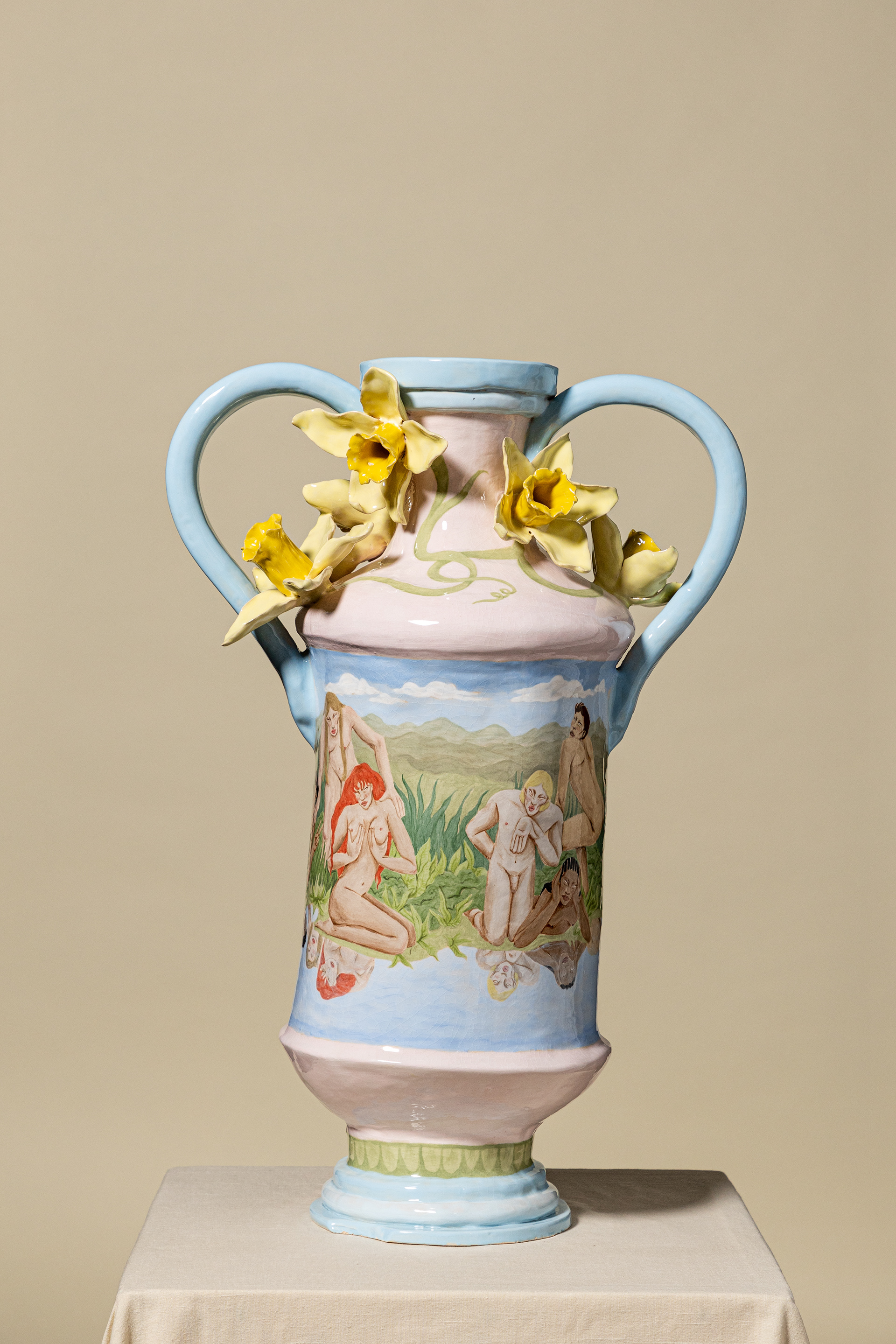
© Jasper Zijlstra
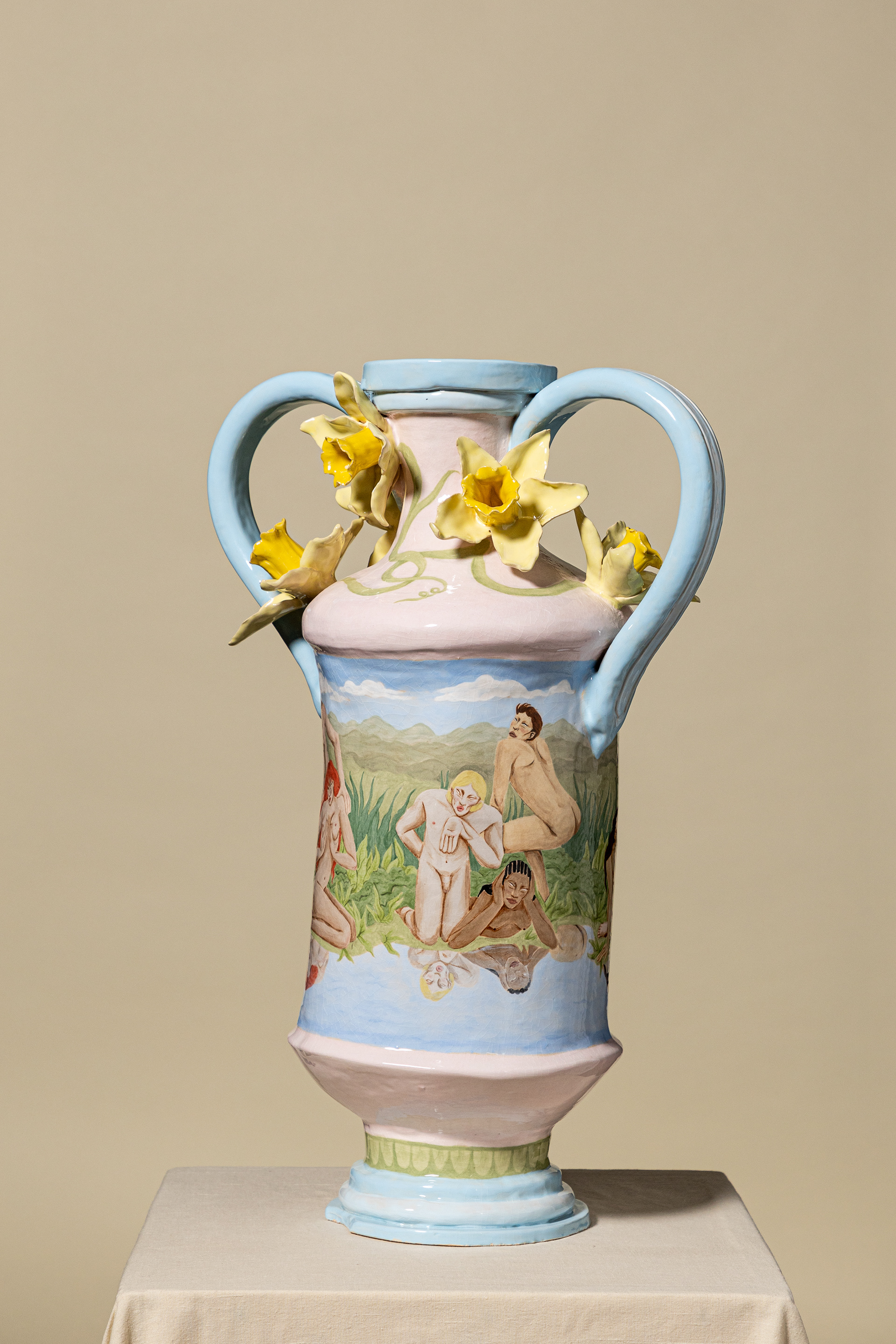
© Jasper Zijlstra
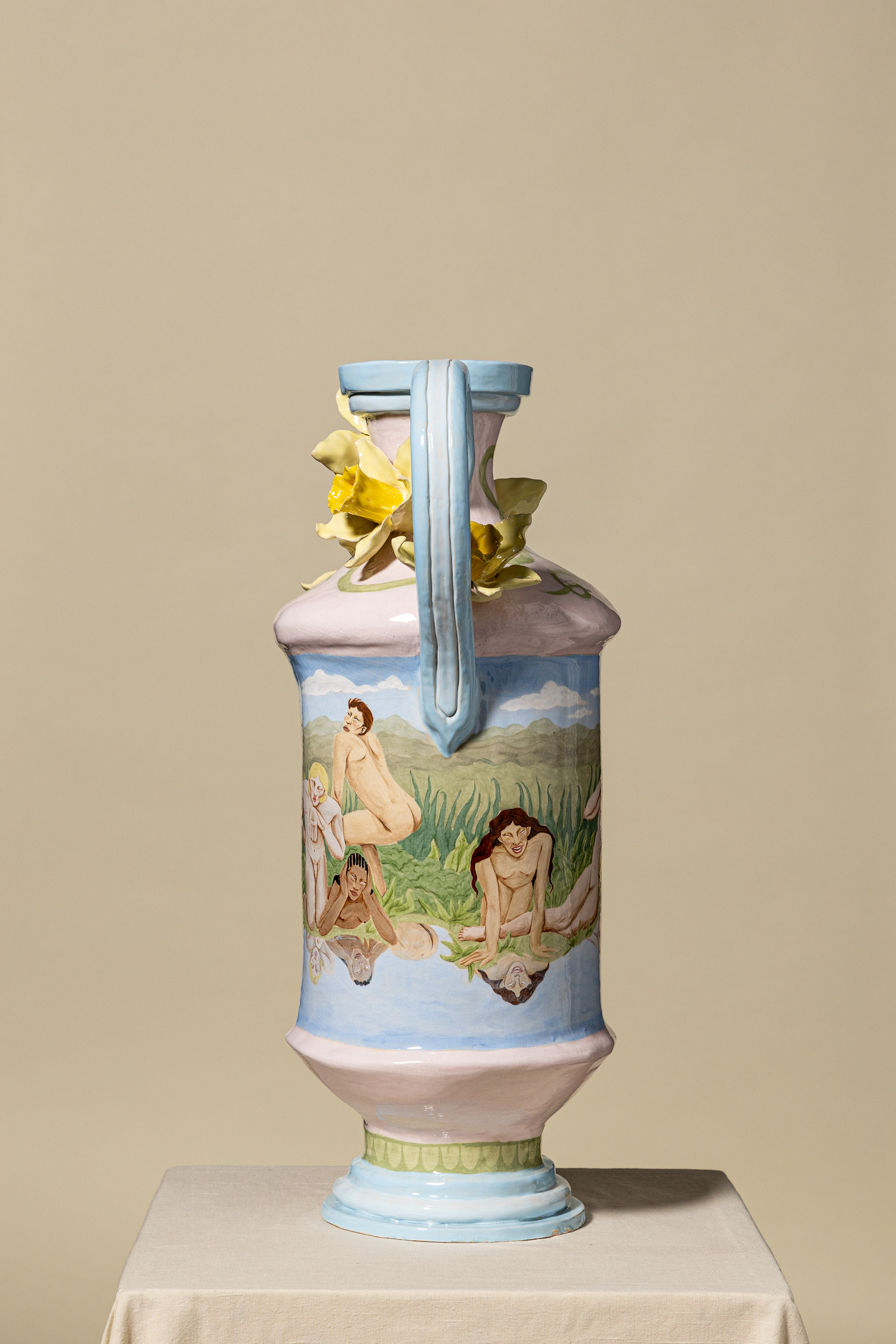
© Jasper Zijlstra
© Jasper Zijlstra
Berghain Bacchanal
Dionysus (also known as Bacchus) is the Greek god of wine, theatre and partying. His origins are shrouded in the mists of time, but he became one of the more popular gods in ancient times, and we can imagine why: he was the god of fun, sexuality and fertility, enthusiasm, forgetting about your worries, and - to put it bluntly - getting drunk and losing control of oneself. The Dionysia was a very important official religious festival held in ancient Athens to celebrate this god, and the well-known theatre forms of tragedy and comedy find their likely origins in these festivities. In Roman times, things started to get out of hand, when rich people started organizing private festivals, known as Bacchanalia, inspired by and based on the Dionysia. These Bacchanalia were often much less organized and formal than the Dionysia had been, devolving into what many Romans saw as debauched and uninhibited revelries with all kinds of sexual extravaganzas and state-undermining activities going on; not surprisingly, the Bacchanalia became a very popular subject of Renaissance artists.
Nonna’s vase draws a direct line from these Dionysian revelries and their depiction in Renaissance art to the nightlife and party culture we see today. A rich abundance of drugs, alcohol, music, fetish wear and sensuality, and many other means of escapism seem to have become quite common in the modern party scene of today. The ease with which comparisons can be drawn between the Greek world and our own suggests that this need for ecstasy and escape from the ordinary is somehow essential to human nature.
A sobering afterthought: those who see such escapism as vain and empty can find allies in antiquity. The philosopher Aristotle reports that Silenus, the companion and teacher of Dionysus, and himself a god of drunkenness and dance, said that the best thing for human beings was not to be born at all, and the second-best thing to die as soon as possible: an unexpected view that gives the escapist nature of all things Dionysian a rather desperate streak.
Text by Maarten van Houte
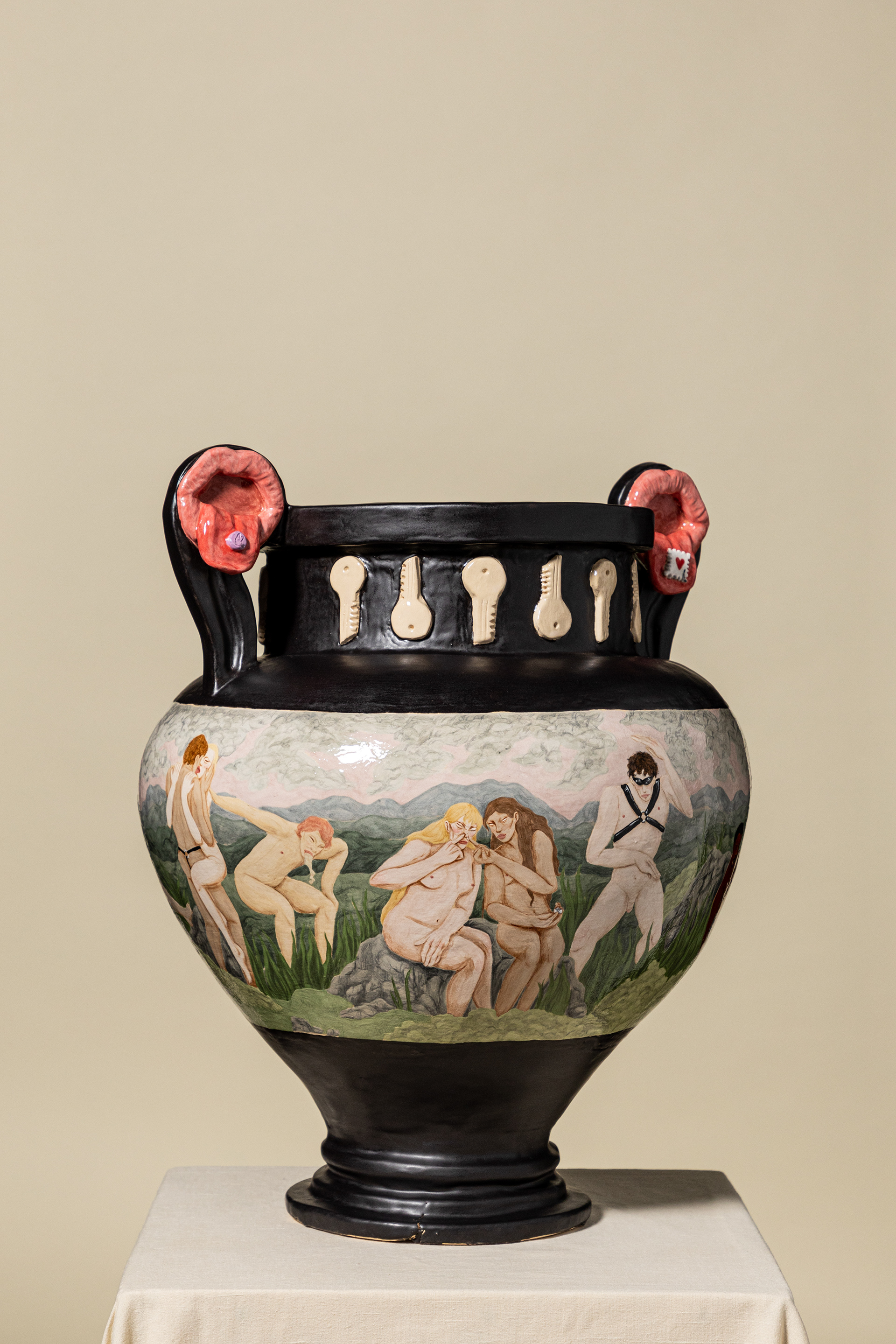
© Jasper Zijlstra
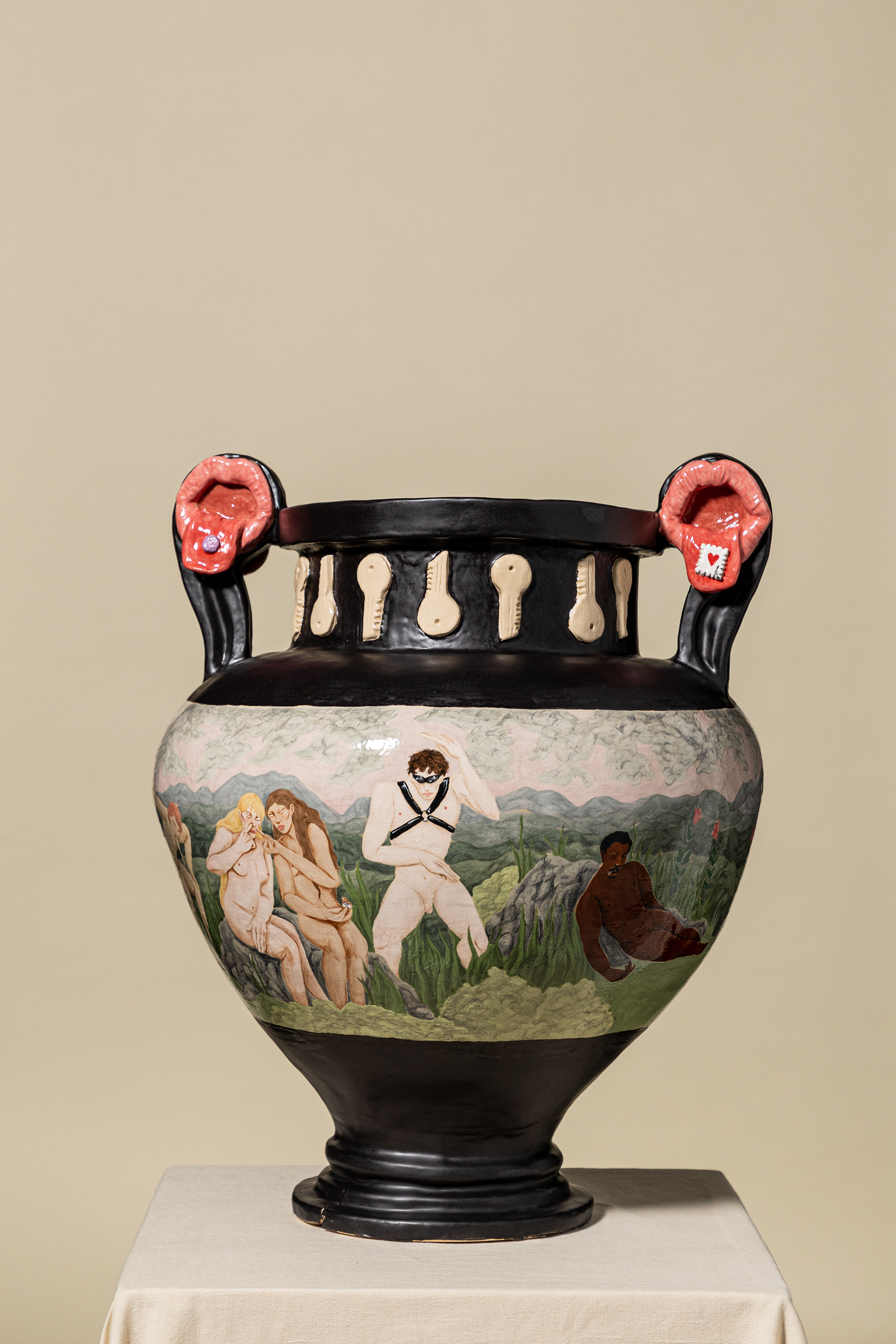
© Jasper Zijlstra
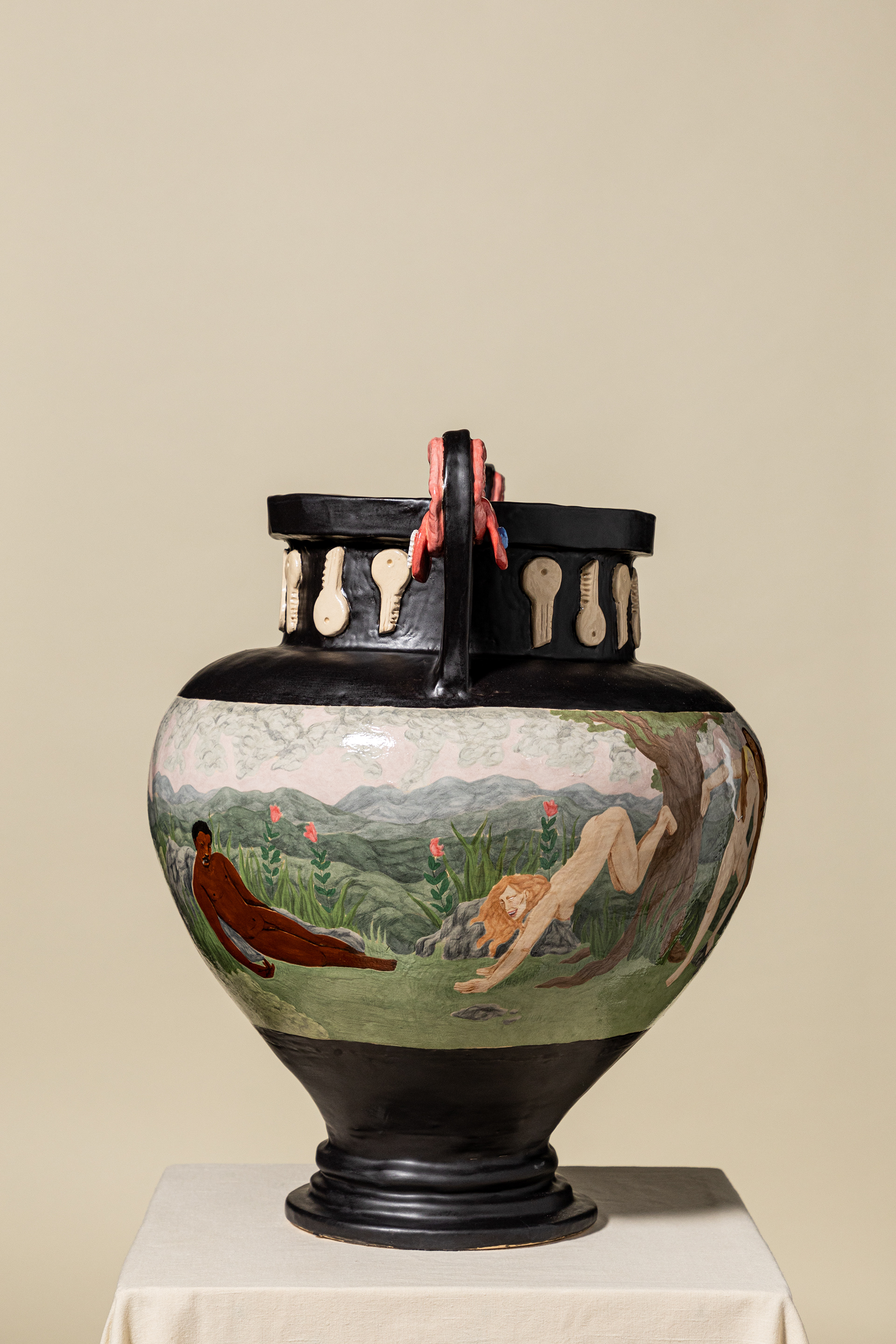
© Jasper Zijlstra
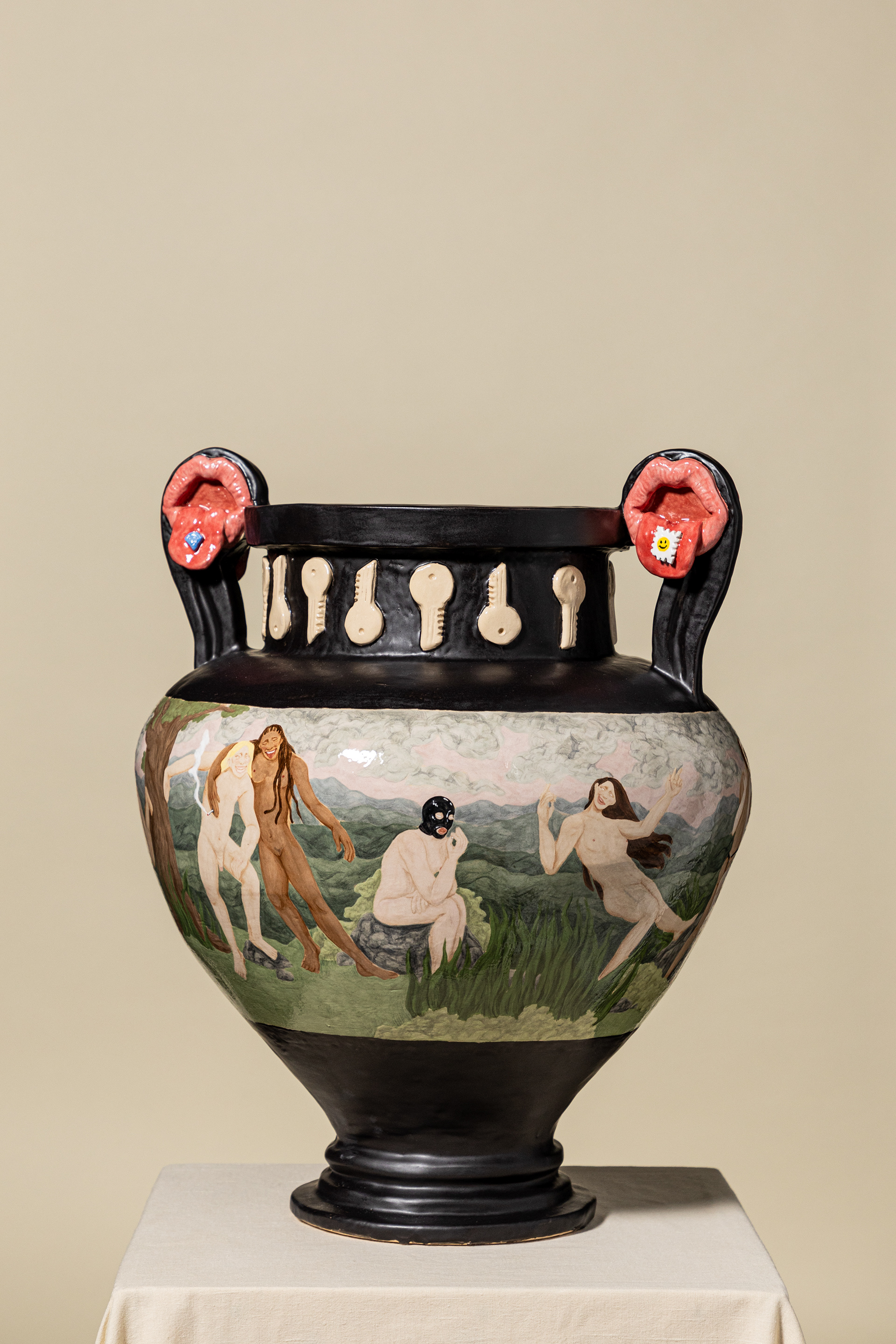
© Jasper Zijlstra
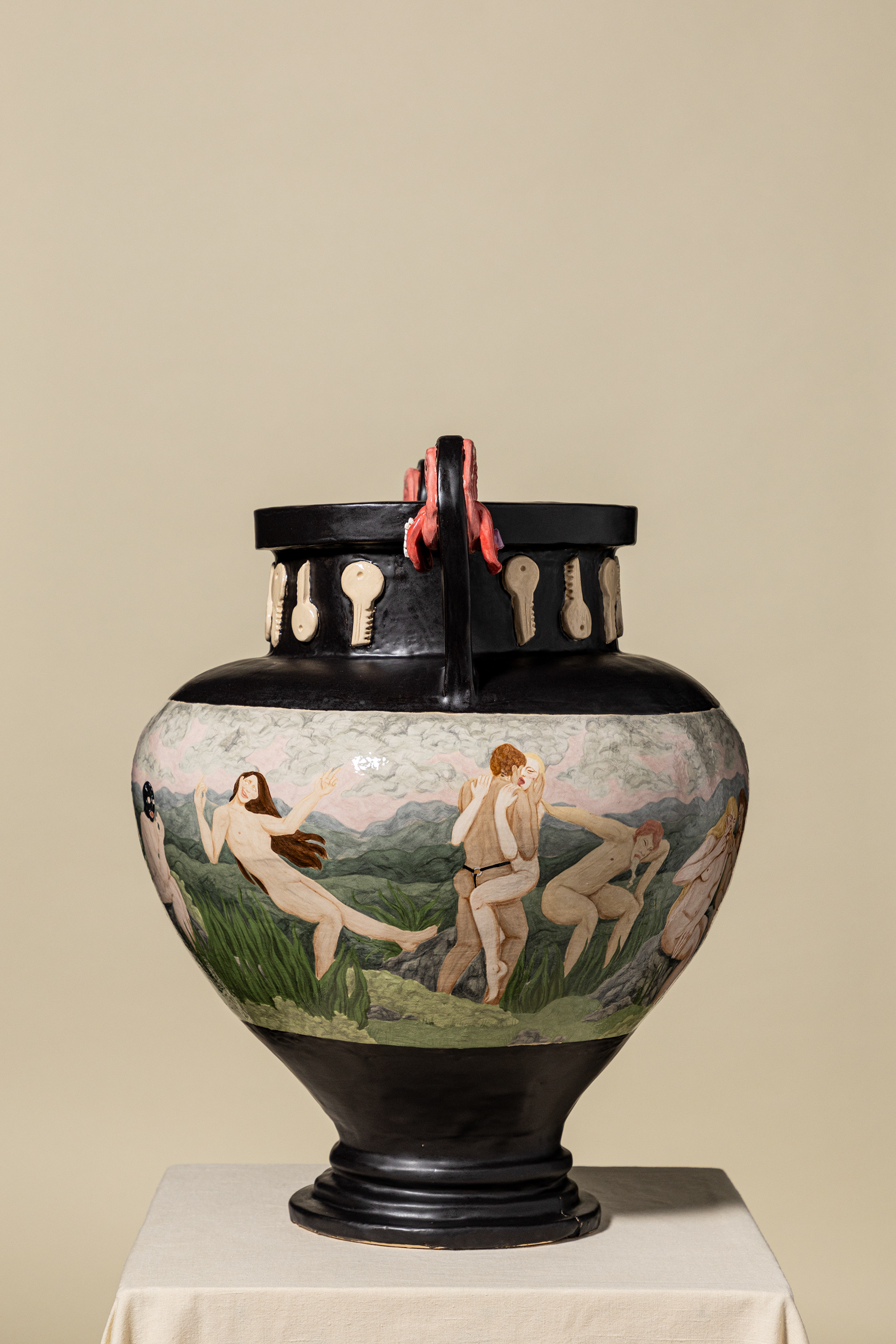
© Jasper Zijlstra
© Jasper Zijlstra
Male Tragedy
Poseidon, god of the sea, wanted to get revenge on Minos, the king of Crete. He made Minos’ wife and queen, Pasiphaë, fall in love and have intercourse with a bull. As a result, she gave birth to a monstrous creature, with the head of a bull and the body of a man, called the Minotaur. To conceal this great shame that had befallen his house, Minos put the Minotaur in the centre of an enormous labyrinth so he might live out his ill-fated life hidden from the outside world. He fed on the flesh of young men and women sent into the labyrinth as a sacrifice, until the Athenian prince Theseus killed him.
Picasso used the Minotaur as a symbol for his own beastly manliness. In his etching series Vollard Suite, he depicts himself as a Minotaur, symbolizing his aggression, his sexuality and his harshness. Nonna builds further on this interpretation of the Minotaur. If we look at him as a symbol for so-called manliness, or even toxic masculinity, we can also see the complexity and tragedy of this mythical figure. After all, even though he was strong and fearful (feared?), the Minotaur might actually be one of the most tragic figures in Greek mythology: he was the offspring of a sexual union that was devised out of revenge, and he could not help his aggressive and beastly nature. He spent his miserable and lonely days dwelling in a dark labyrinth, filled with his own filth and the bones of the frightened young people he ate. There are some versions of the myth that say he even begged Theseus to kill him. Is this Minotaur perhaps deserving of our sympathy? Pondering this question encourages us to reflect on the nature of masculinity and the way societies, ancient and modern, impress their ideas about it on us.
Text by Maarten van Houte
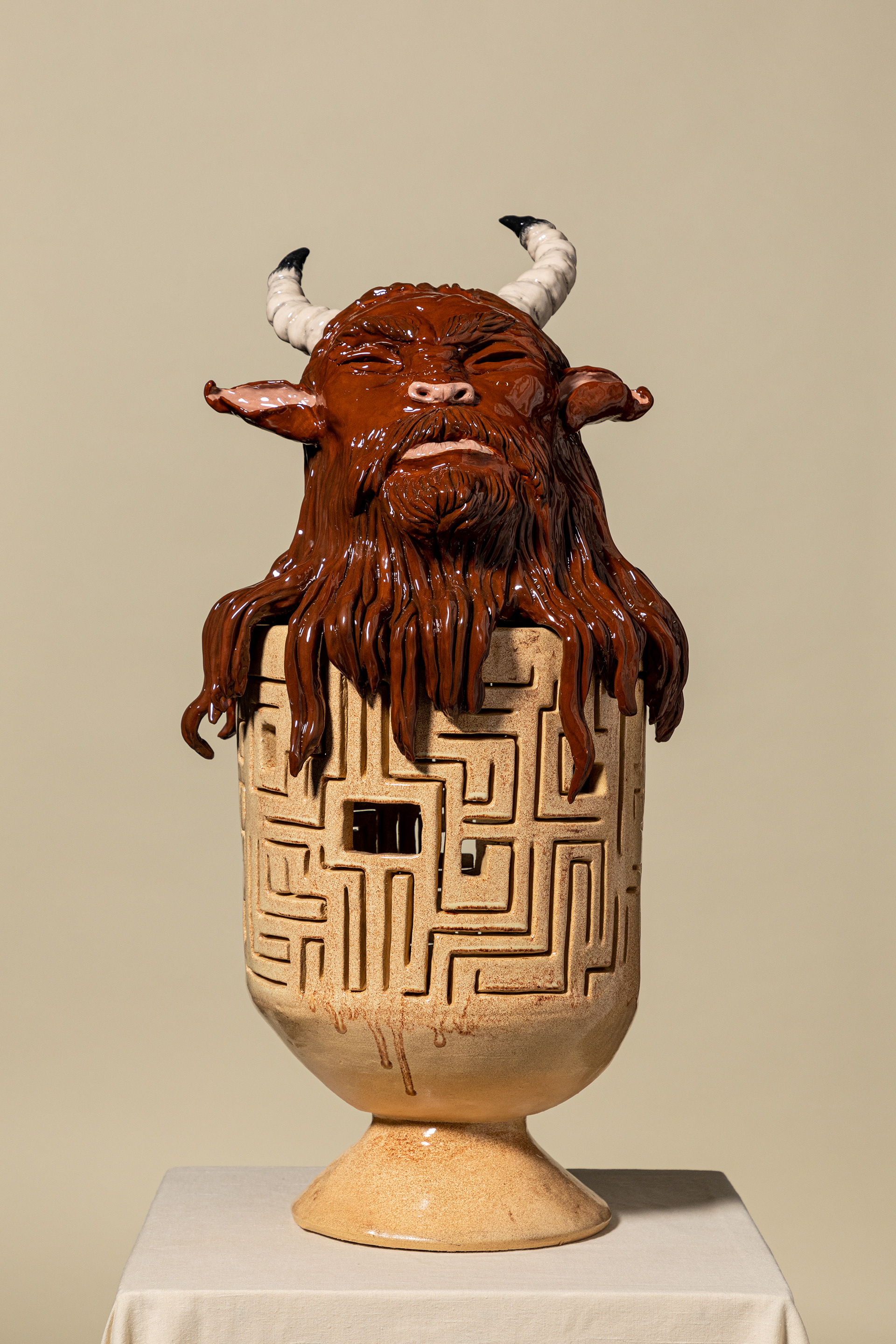
© Jasper Zijlstra
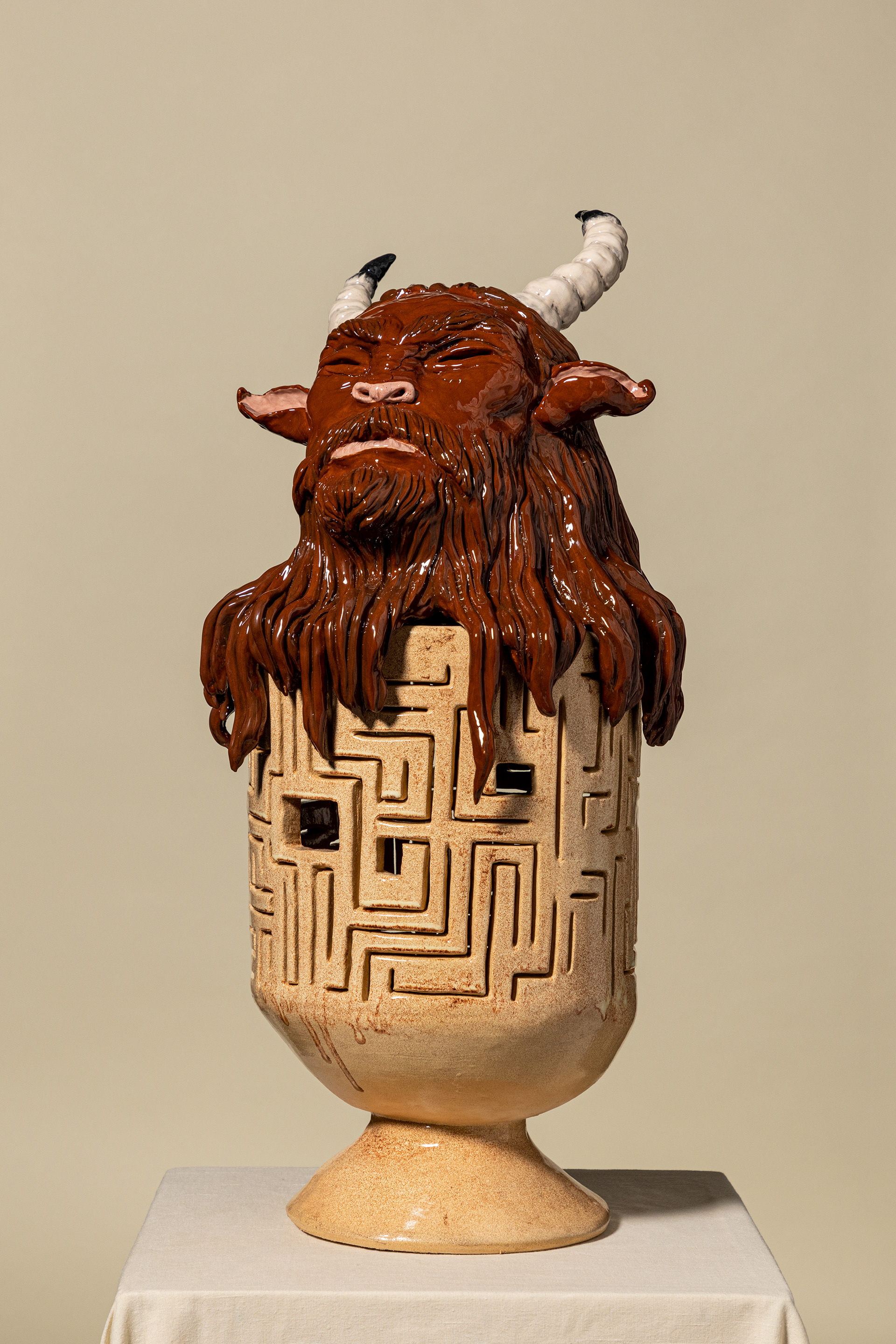
© Jasper Zijlstra
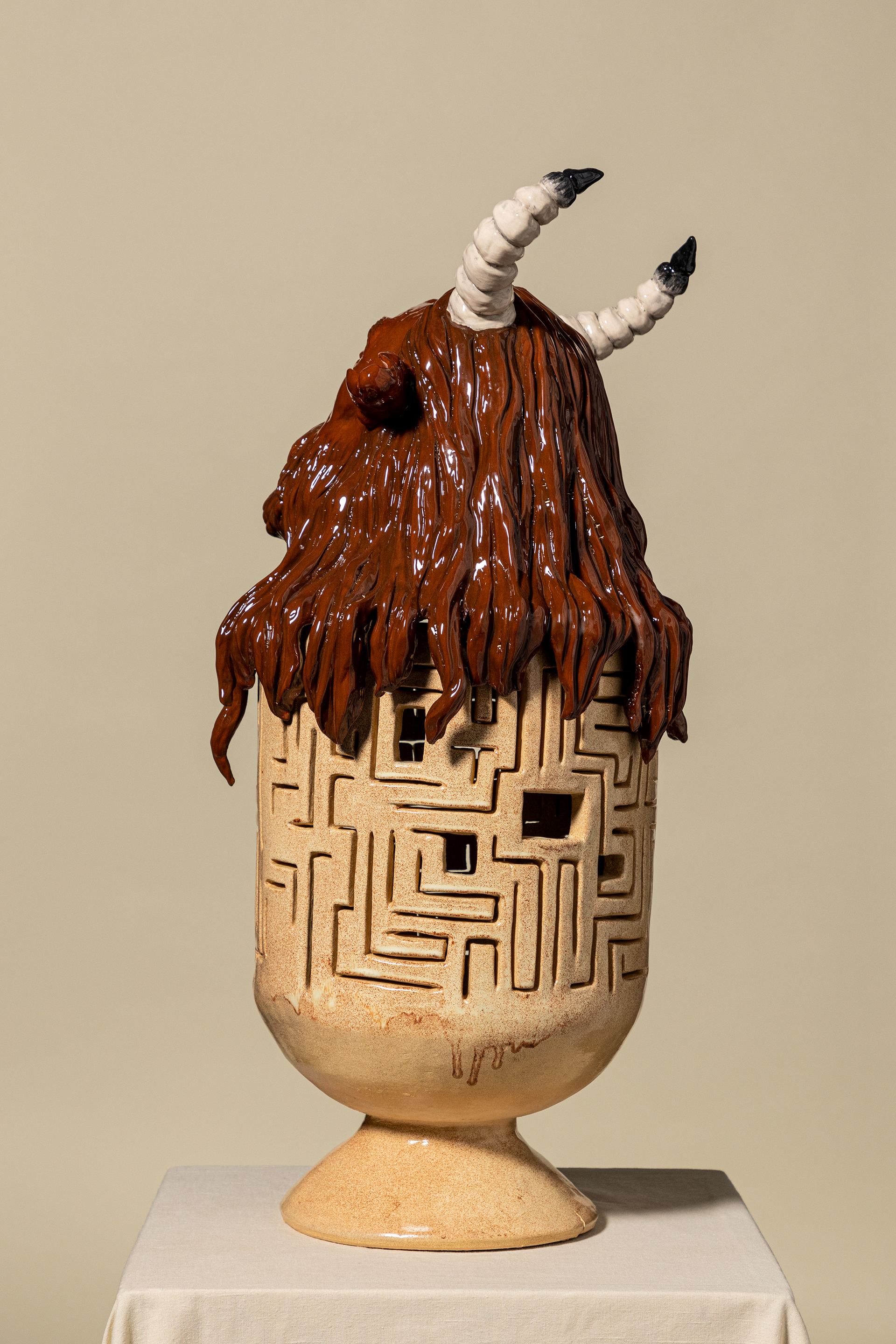
© Jasper Zijlstra
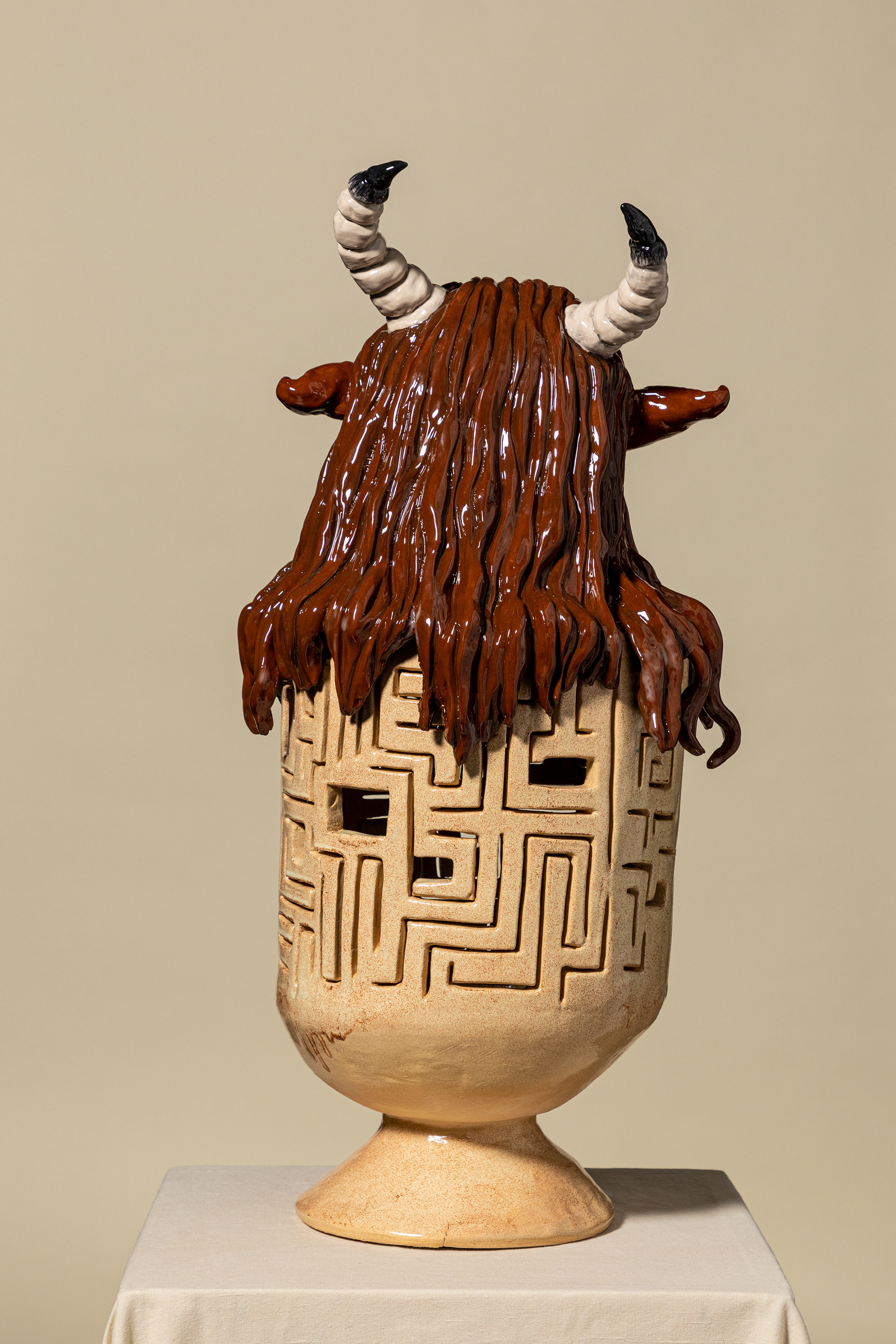
© Jasper Zijlstra
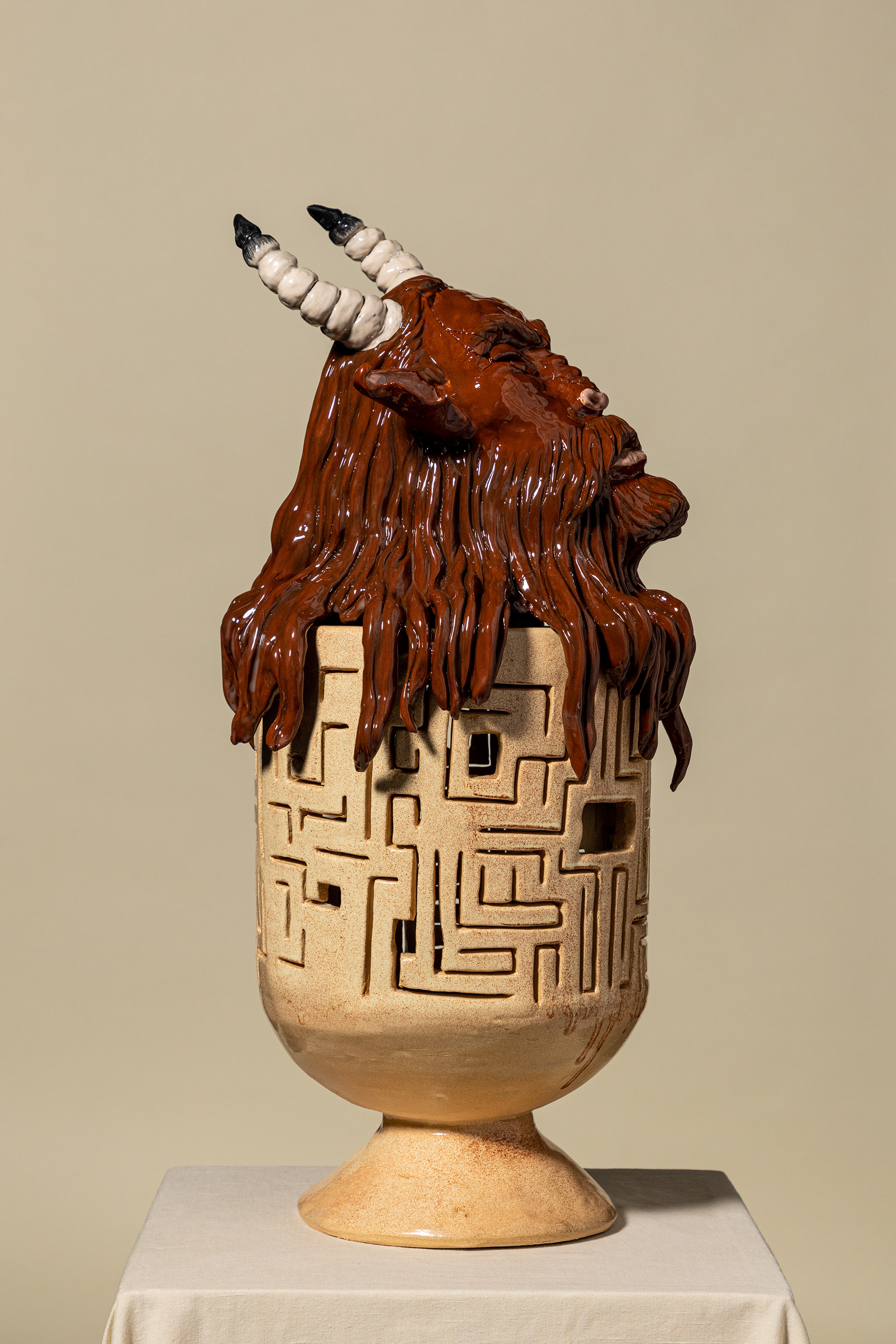
© Jasper Zijlstra
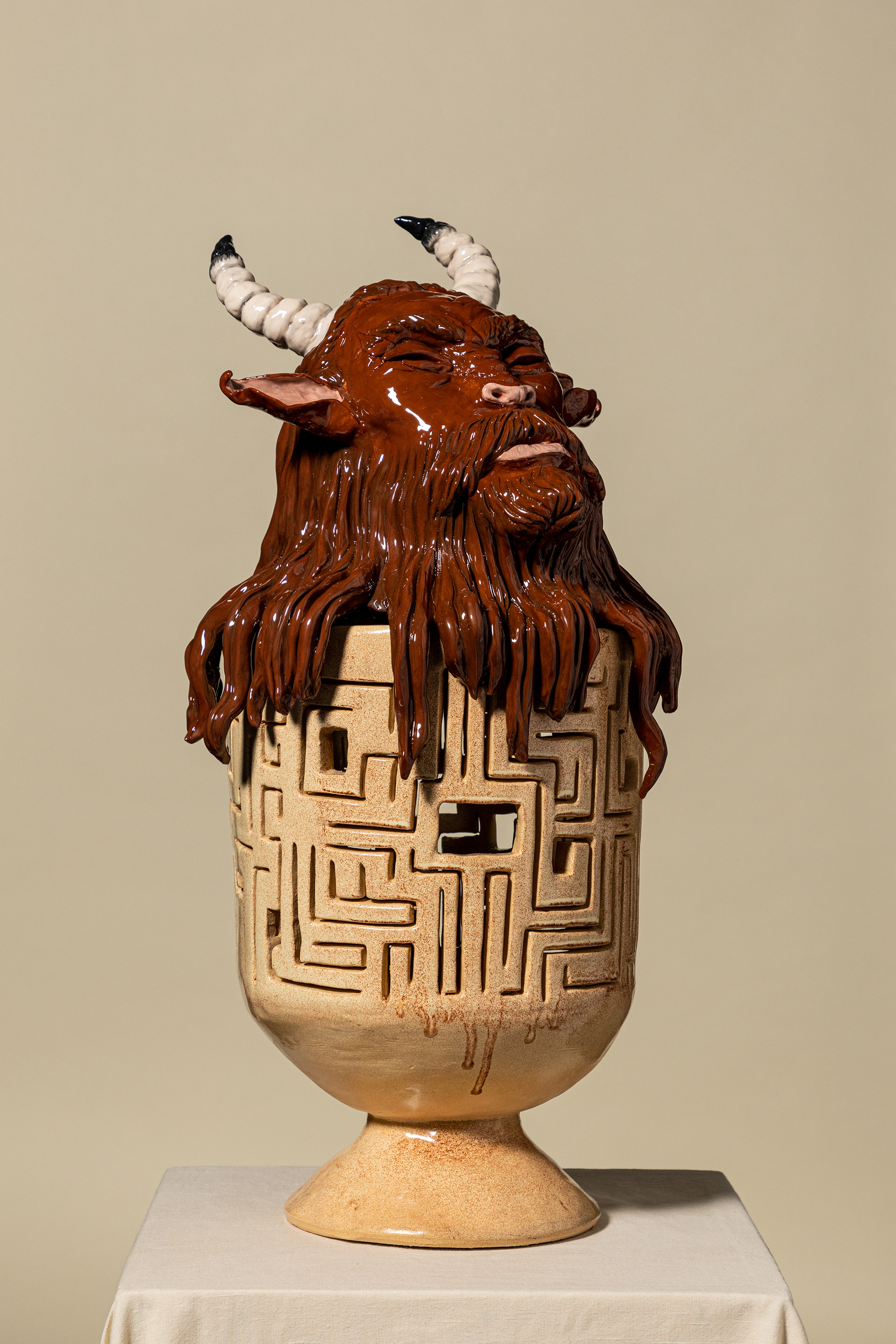
© Jasper Zijlstra
© Jasper Zijlstra
Well… She Shouldn’t Have Been Naked
Everyone knows Medusa, but hardly anyone knows how she became the infamous snake-haired Gorgon whose terrible appearance would instantly petrify anyone looking at her. According to the poet Ovid, Medusa was not born a monster, but turned into one because she was at the wrong place at the wrong time with the wrong god. She was a beautiful young woman, serving as a priestess to the goddess Athena. One day, Medusa caught the eye of Poseidon, and the god of the sea immediately went on to rape her in the temple of Athena. Being a chaste goddess, Athena averted her eyes from this brutal act of her uncle, and afterward directed her fury not at him but at Medusa, changing her beautiful locks of hair into a writhing mass of snakes.
Raped and deformed, Medusa’s suffering did not end there, either, as she was now considered to be dangerous and fair game to wannabe monster-slaying heroes. Perseus was one of those, and he had no qualms cutting off her head while she was asleep and then using it to turn his enemies to stone, before gifting it to Athena who would carry it around to terrify all who dared to stand against her.
This ancient origin story might shock us. Of all those involved, how could Medusa be the one that actually gets blamed and punished for the crime inflicted upon her? Why did Athena look away, instead of stopping Poseidon and blaming him for raping Medusa? Looking at our modern day society, however, we can see the same phenomenon, called victim blaming, rearing its ugly head. Victims, mostly but not exclusively women, are often blamed and shamed for the sexual intimidation or assault they suffer at the hands of (mostly) men: “Maybe Medusa should not have worn such a short skirt. Maybe Medusa could have just said no to Poseidon. Maybe… etc.” Medusa’s story shows us the senselessness and callousness of these reponses, and Nonna’s vase shows what happens when we project the ugliness of sexual violence on its victims.
Text by Maarten van Houte
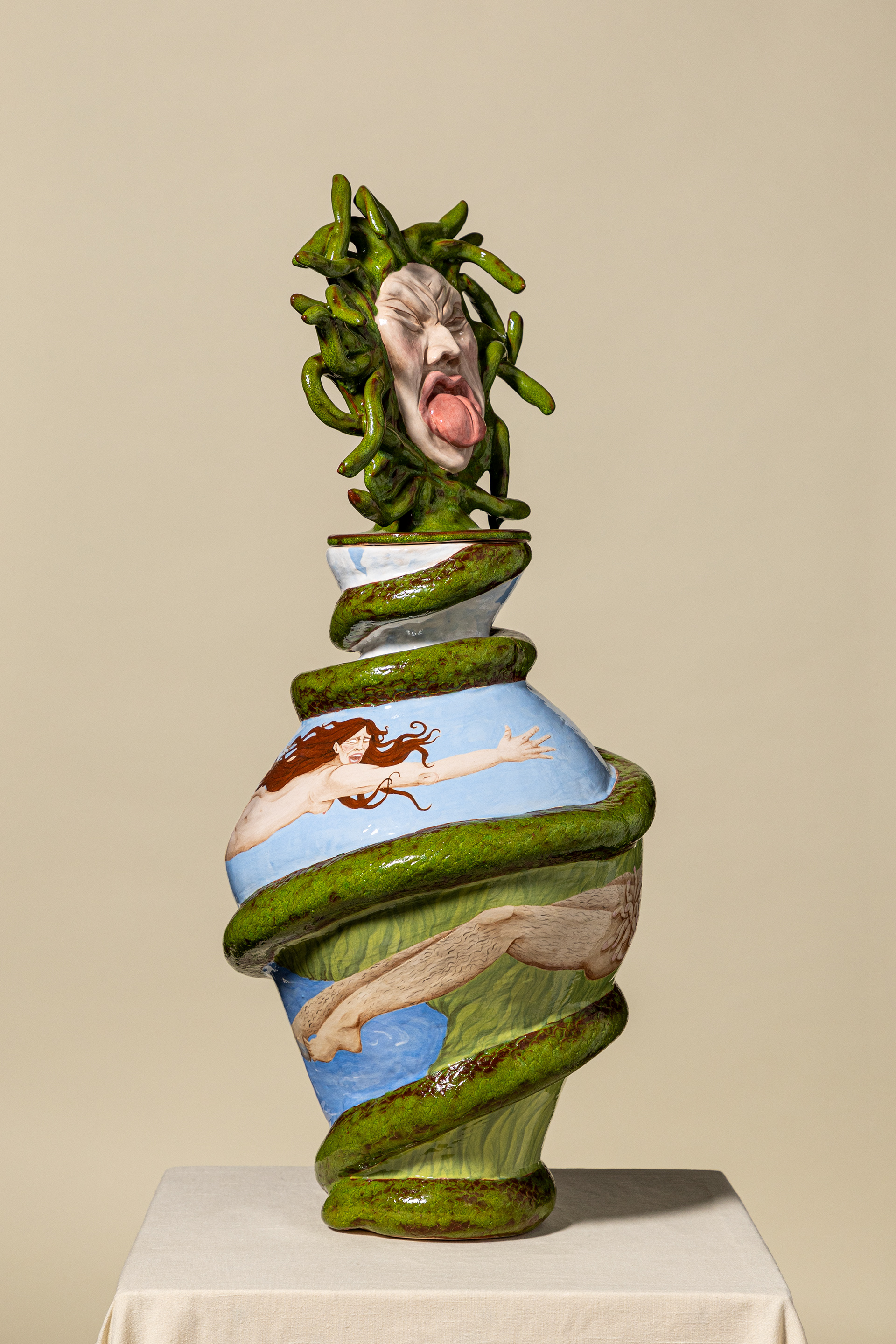
© Jasper Zijlstra
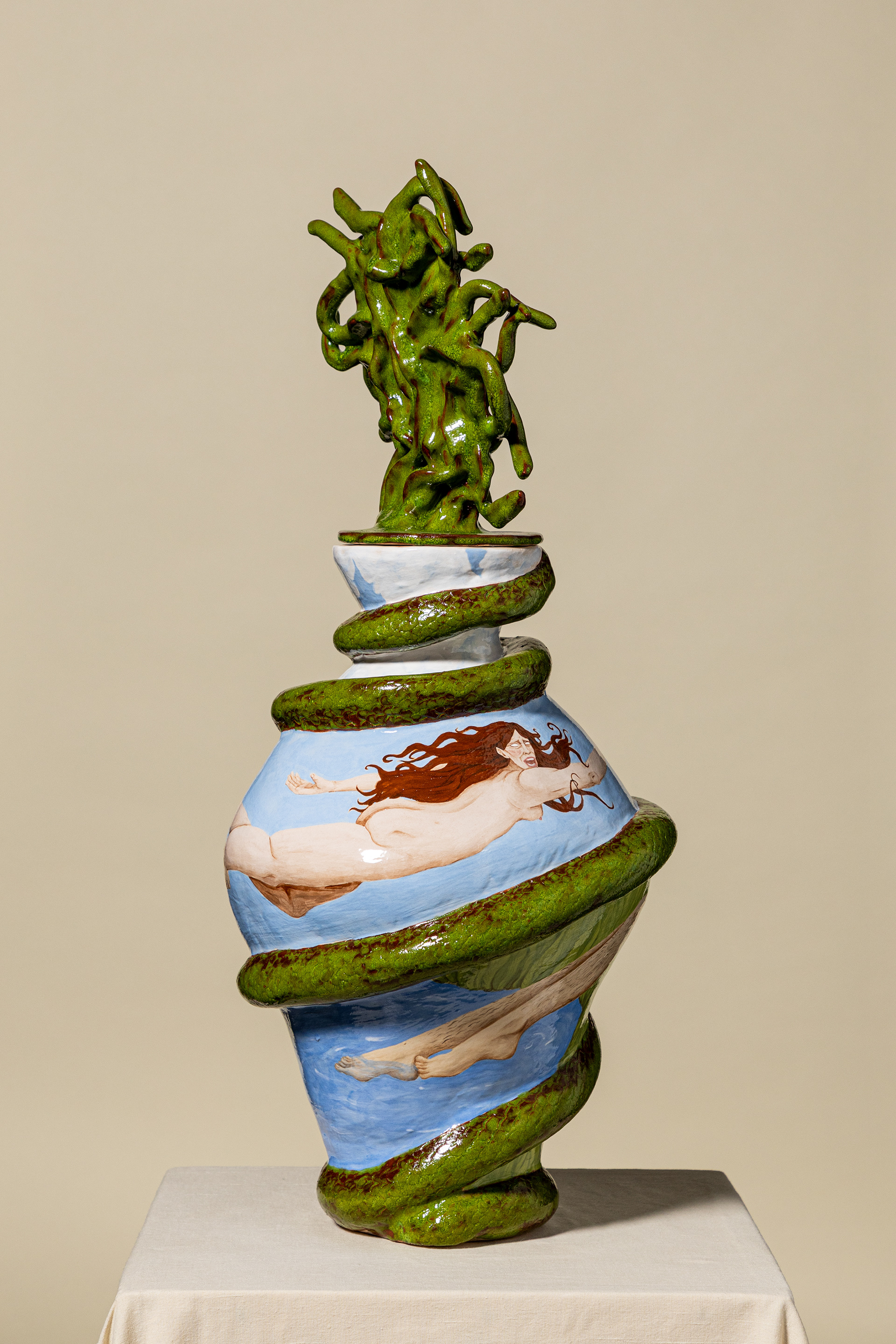
© Jasper Zijlstra
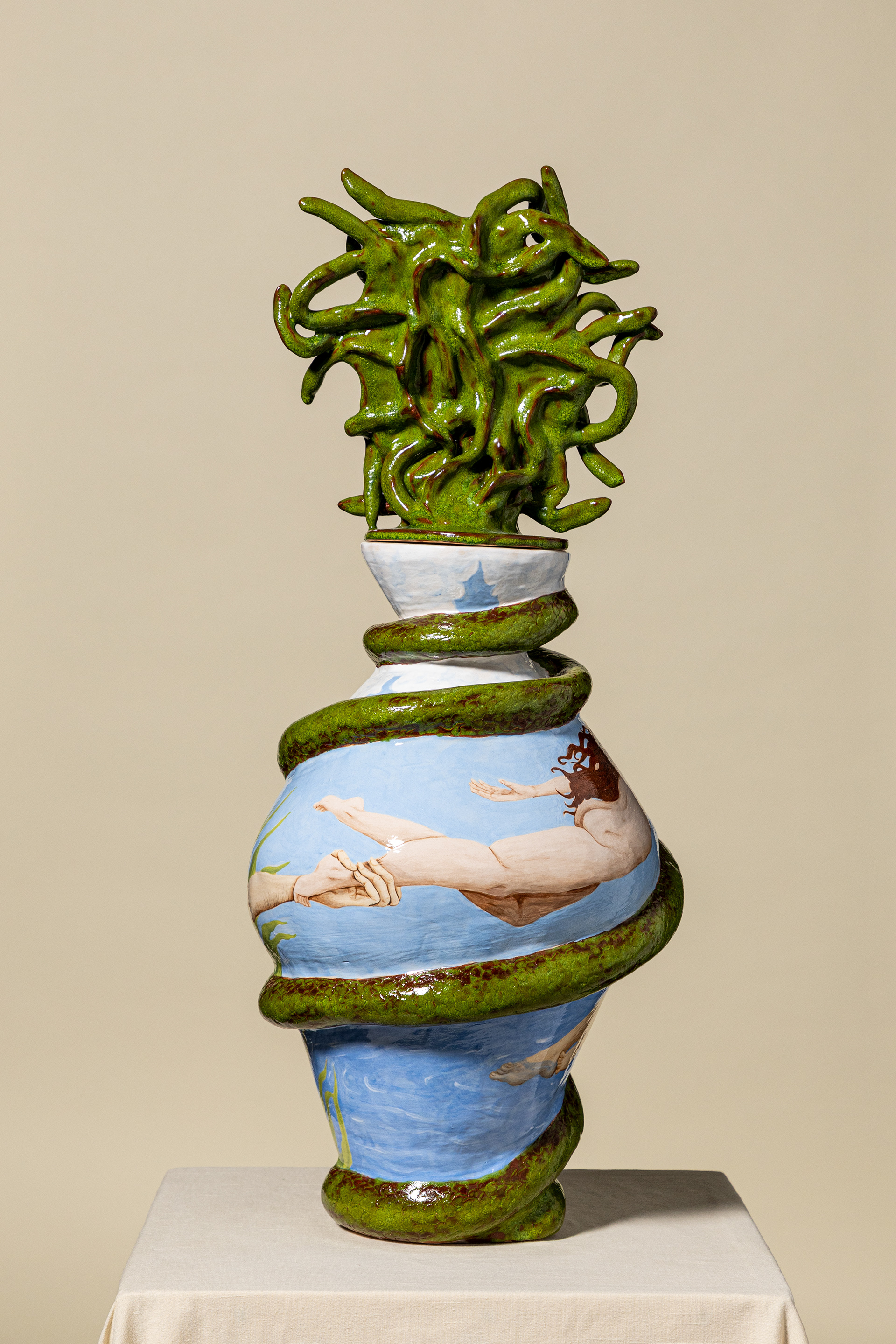
© Jasper Zijlstra
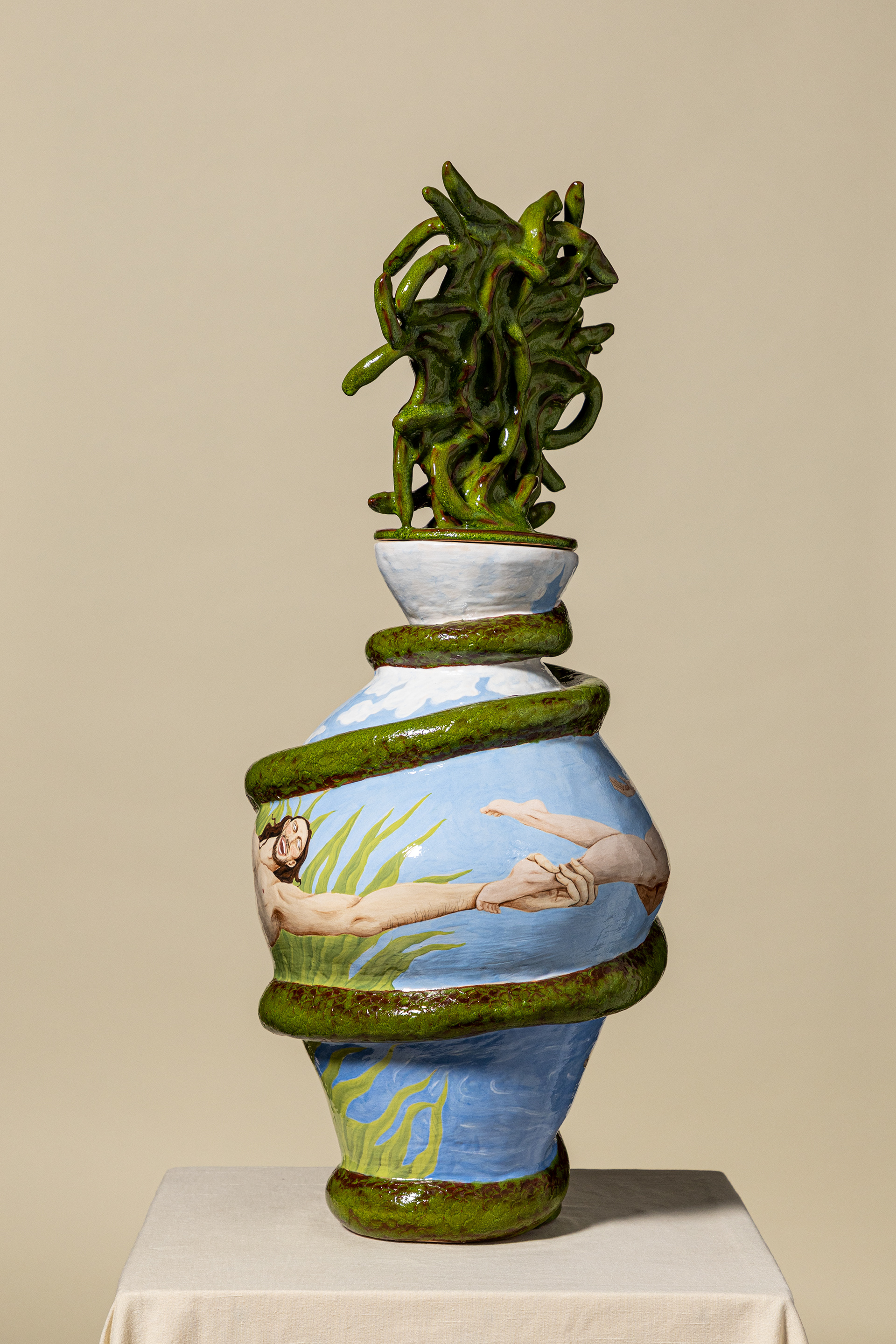
© Jasper Zijlstra
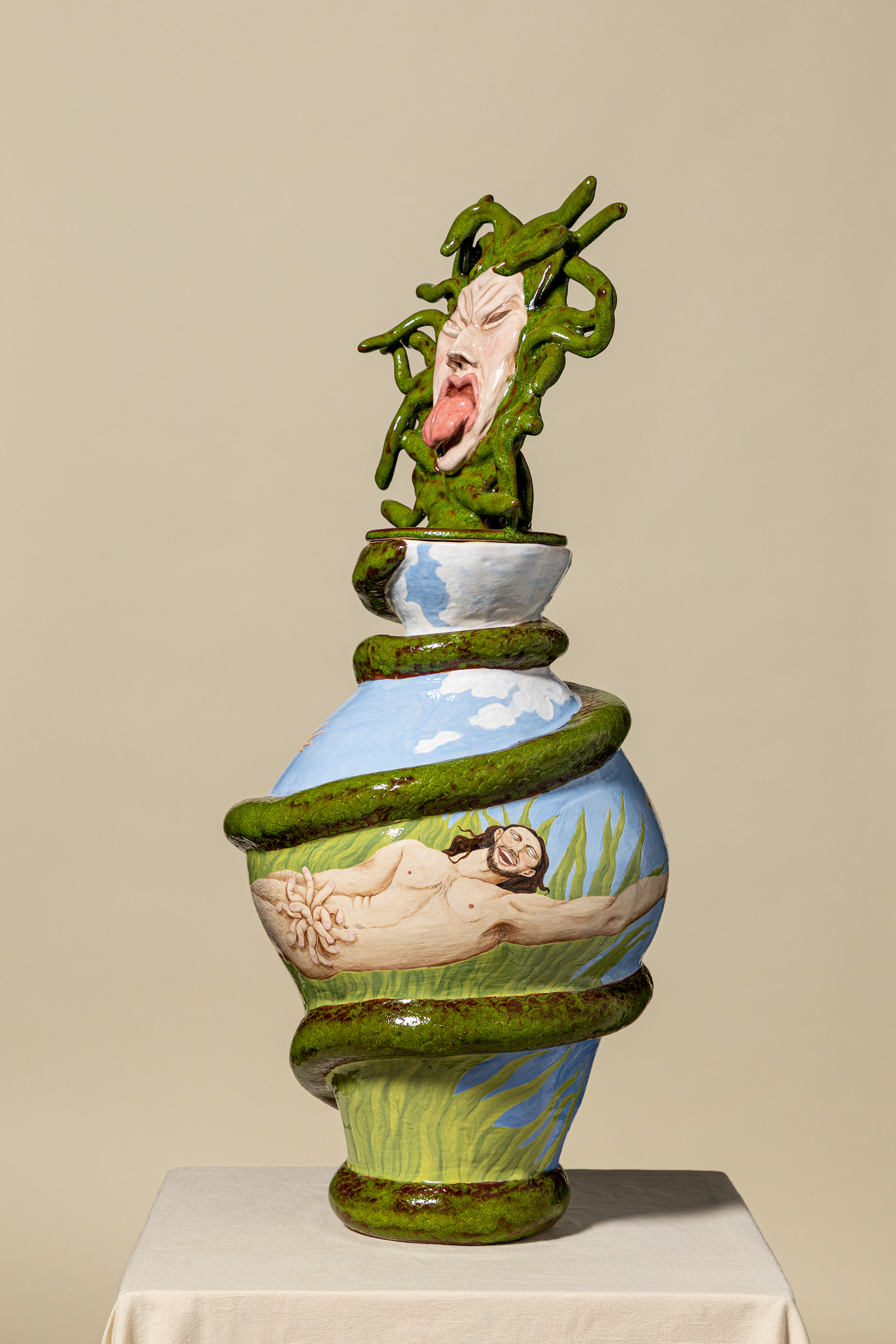
© Jasper Zijlstra
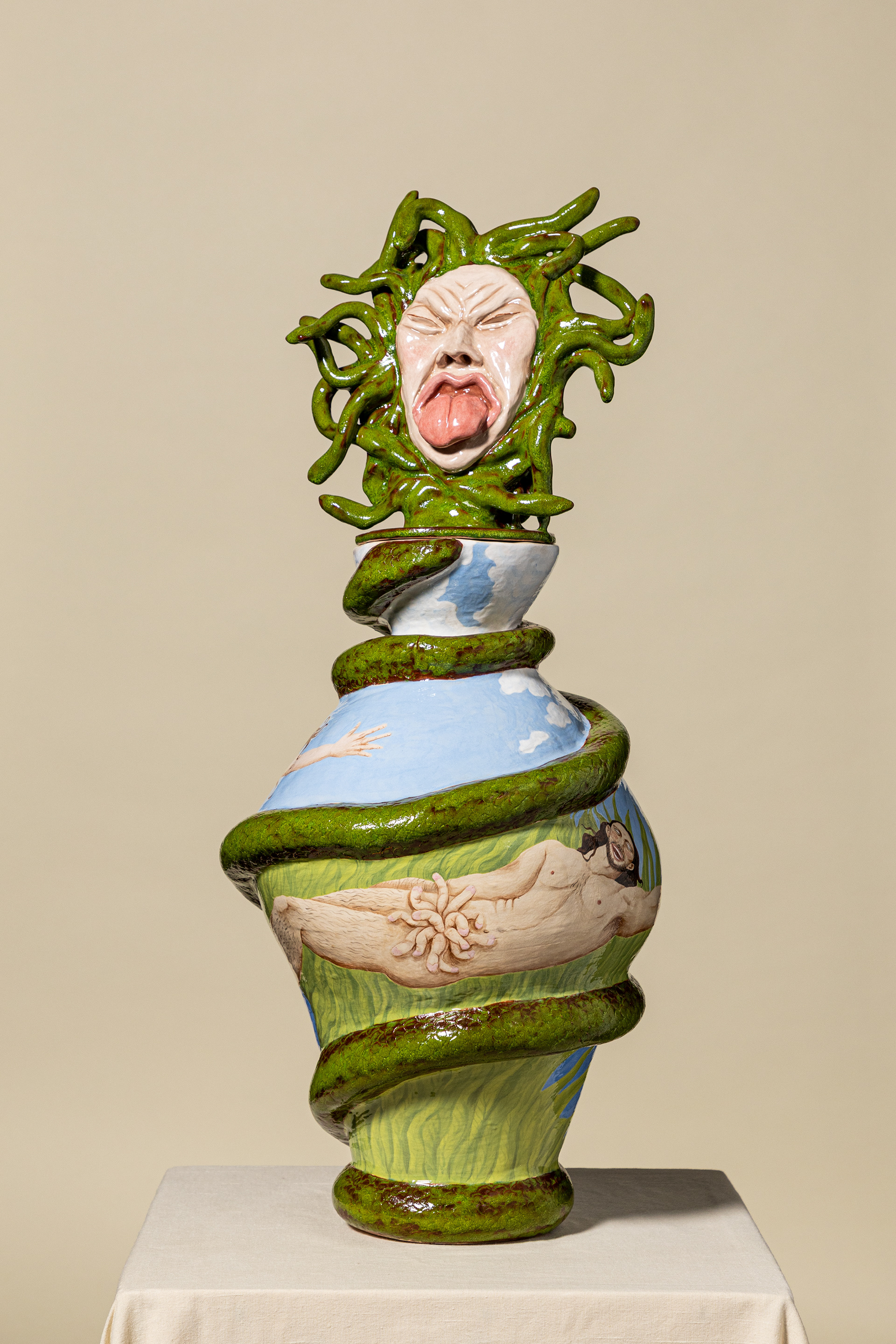
© Jasper Zijlstra
© Jasper Zijlstra
Golden Shower
Zeus was the chief or king of all the gods on Mount Olympus, and was the god of the sky, of thunder, and of justice, wielding his thunderbolt as a warning and weapon against all transgressors of the law. Due to his supreme power and wisdom, the ancient Greeks believed that Zeus kept a close eye on human behaviour and would readily punish wrongdoers. At the same time, however, Zeus himself had a darker side as well and seemed to regard himself as being above the laws he imposed on others.
Zeus is well known, e.g., for his constant infidelity towards his wife, Hera. Whenever a mortal, half-god or goddess would catch his eye, he would do everything to make them his - with or without consent and without any consideration of others’ wellbeing. He transformed himself into a bull, a swan, a satyr, or even a woman’s husband, to get his way.
One particular story of Zeus’ conquests-through-transformation is that of Danaë. Danaë was the daughter of Acrisius, the king of Argos. Acrisius was prophesied to be killed by the hand of his daughter’s son and, fearful of this fate, decided to imprison and guard Danaë so she would never bear any children. Unfortunately for him, Danaë attracted the interest of Zeus, and even though she was locked in a bronze dungeon with no entrance, Zeus would and could not be denied. Turning himself into a rain shower of gold, he infiltrated Danae’s cell from the roof and got her pregnant with a son.
Even though Zeus essentially rapes Danaë, and all the other women and boys he desires as well, the paintings and statues that depict these stories often show a seemingly happy and peaceful, or even romantic scene, as if nobody wanted to show, or see, the actual brutality of Zeus’s actions. To this day, unfortunately, men in power still get away with all kinds of (sexual) misconduct: Donald Trump may not be in the running for supreme divinity (though he might disagree with that), but his misogynist and sexist behaviour has not stood in the way of him getting elected to the US presidency. Nonna shows the crudeness and egotistical nature of such behaviour by depicting Zeus’ impregnation of Danaë as a golden shower in another, more metaphorical, sense of the term.
Text by Maarten van Houte
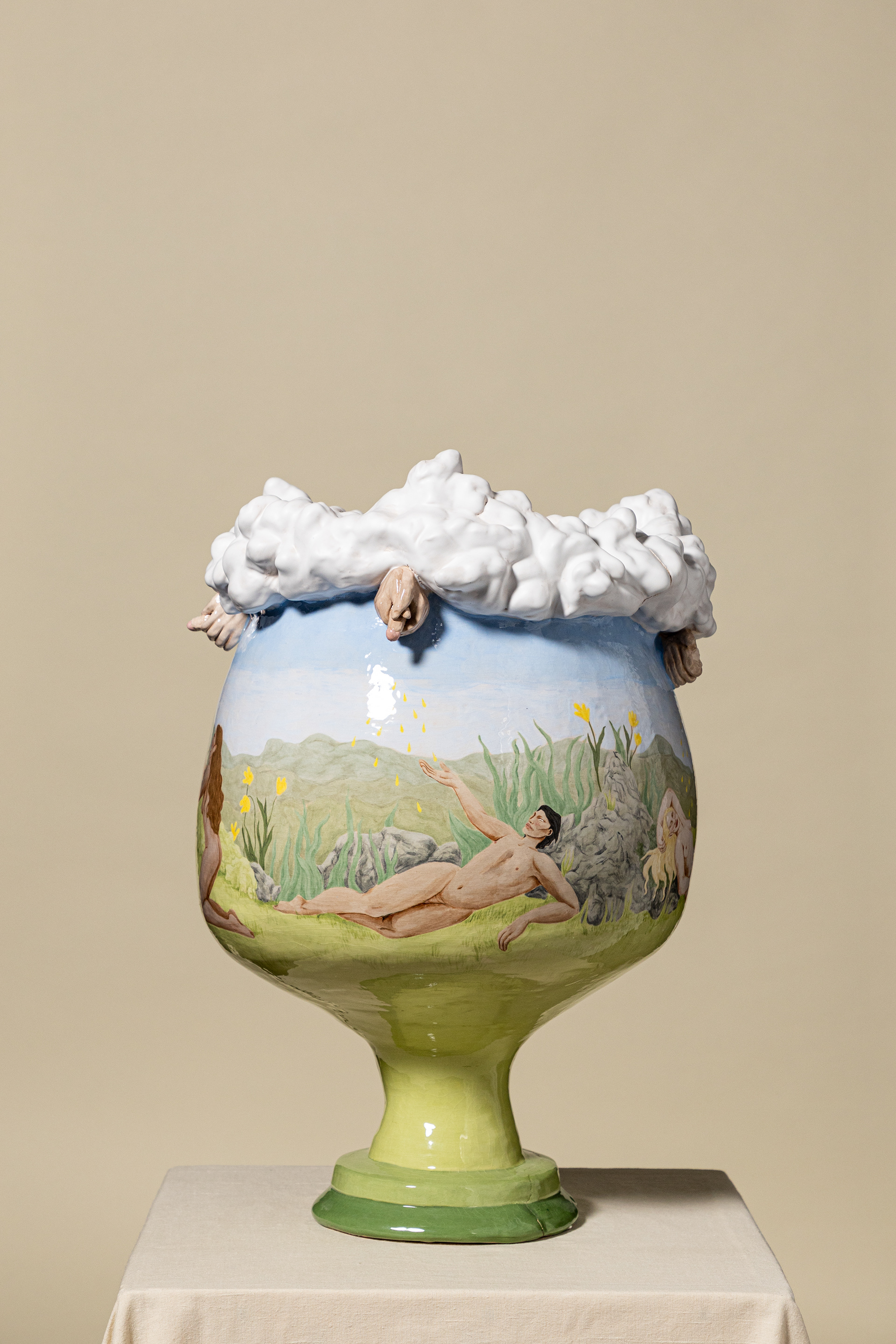
© Jasper Zijlstra
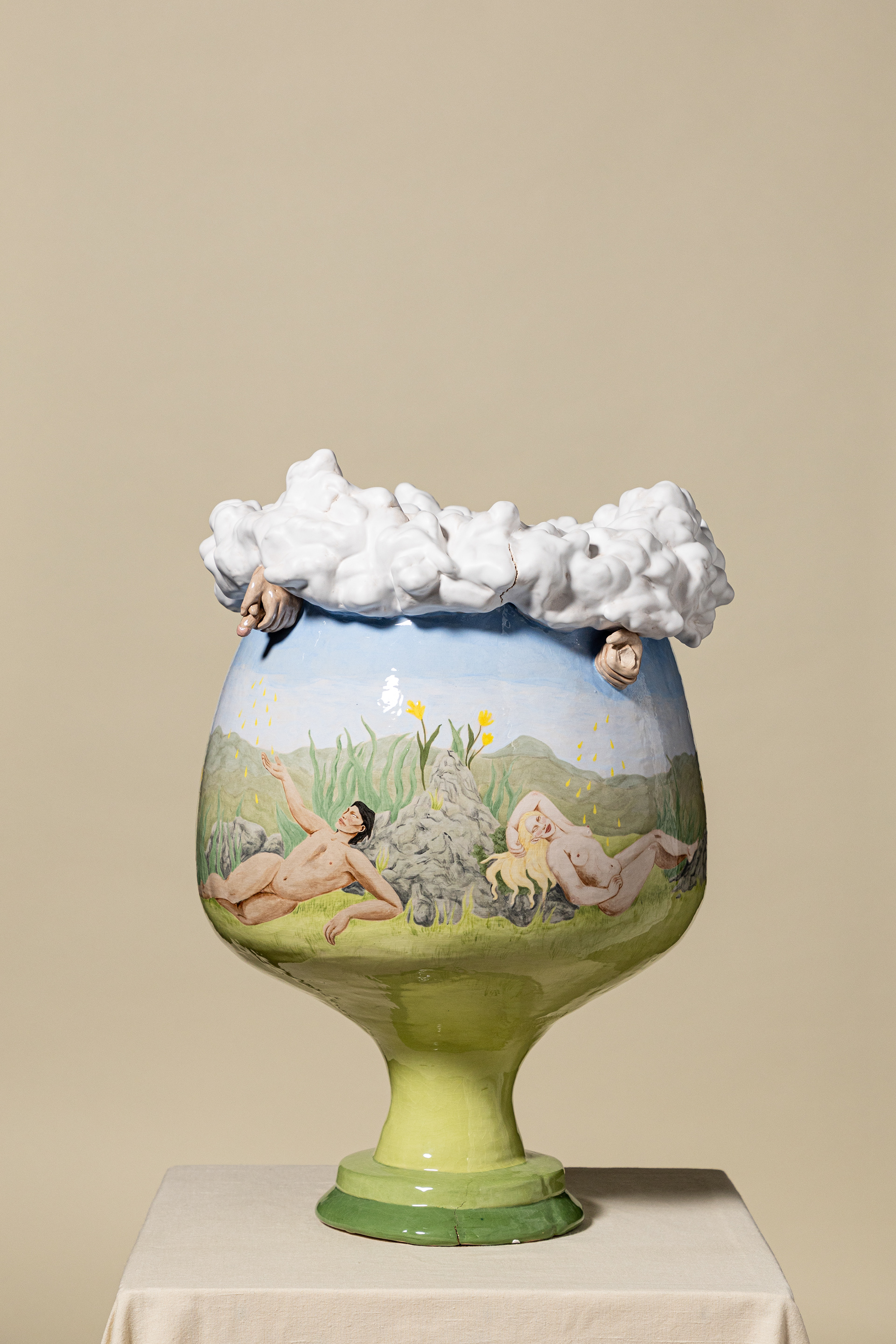
© Jasper Zijlstra
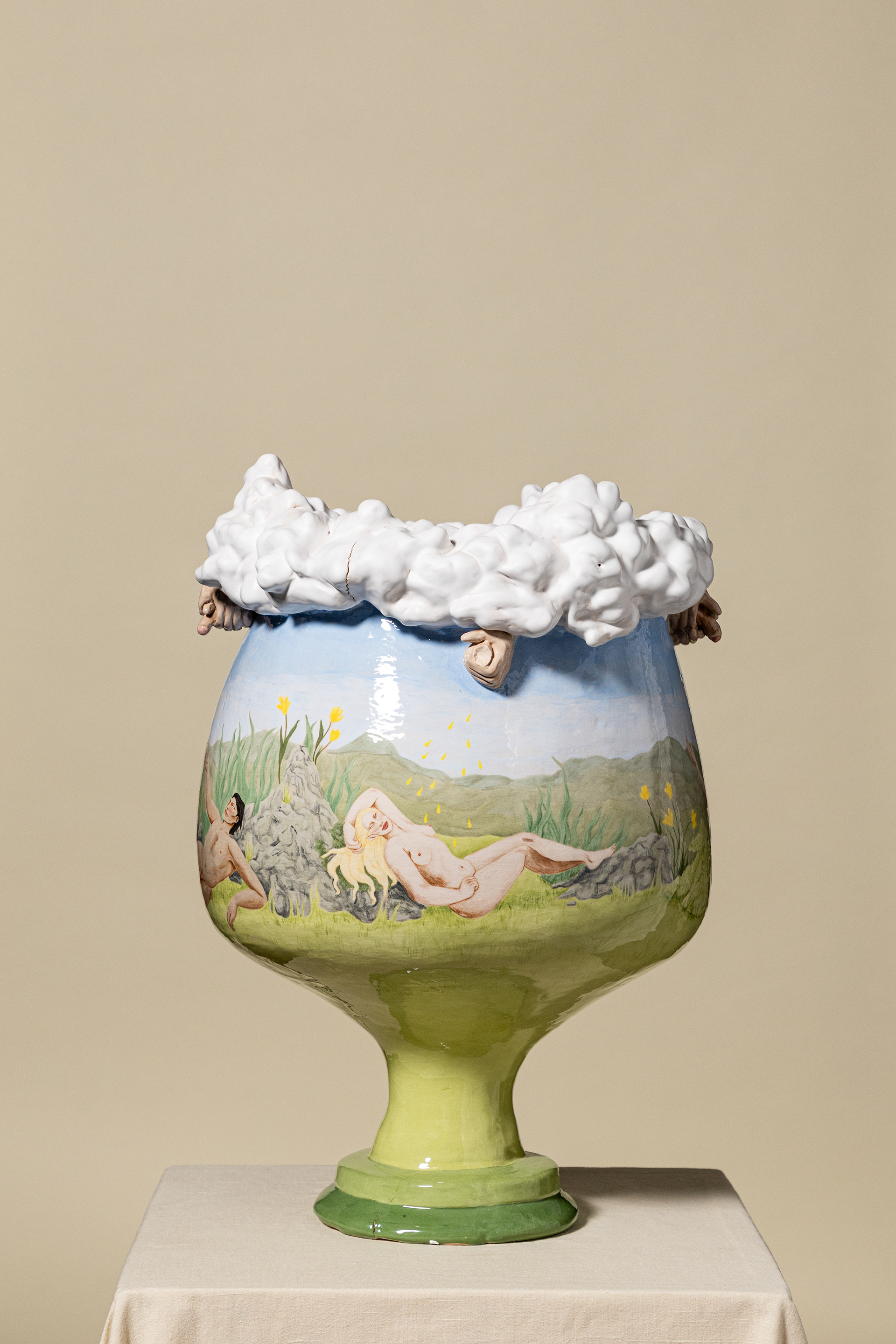
© Jasper Zijlstra
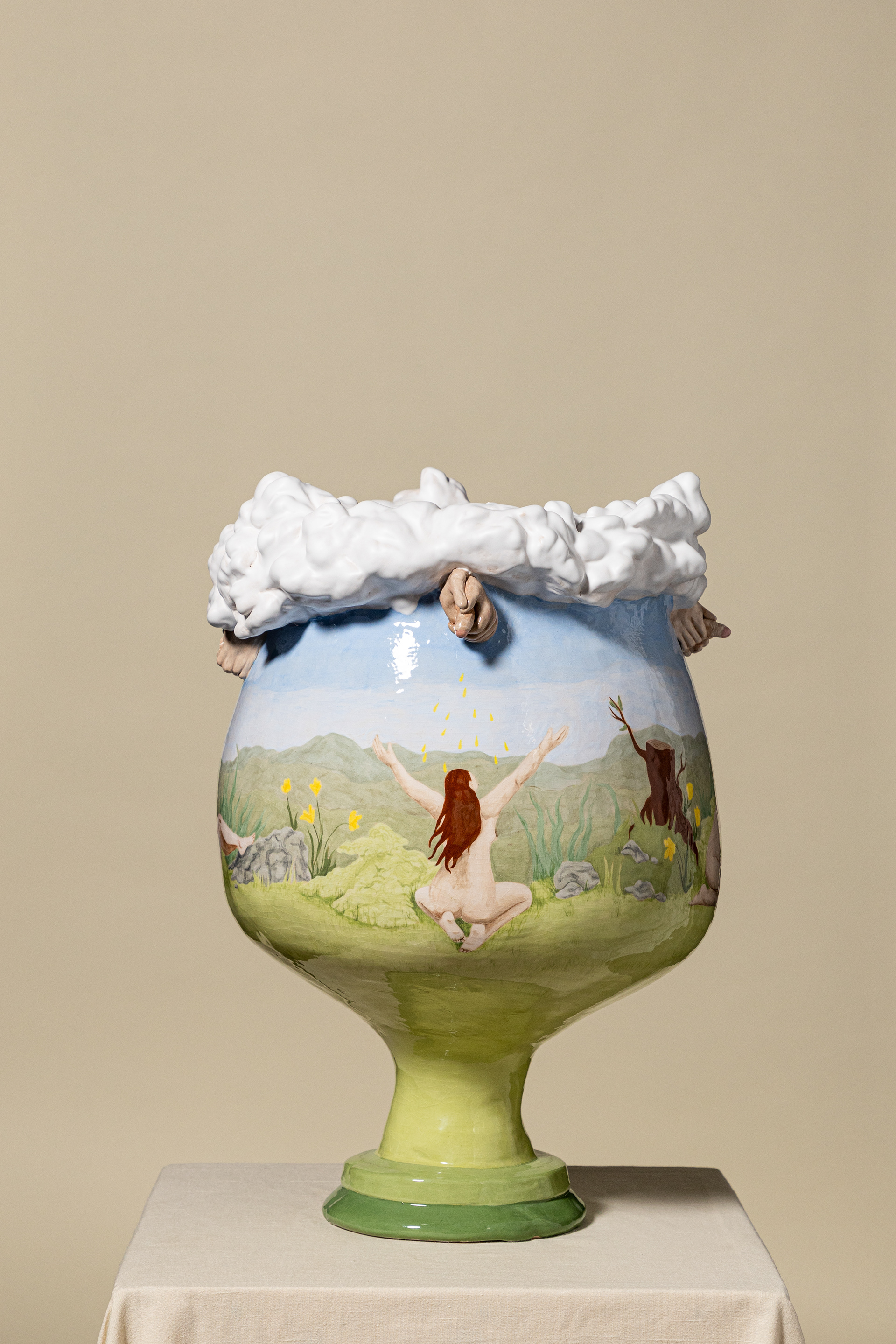
© Jasper Zijlstra
